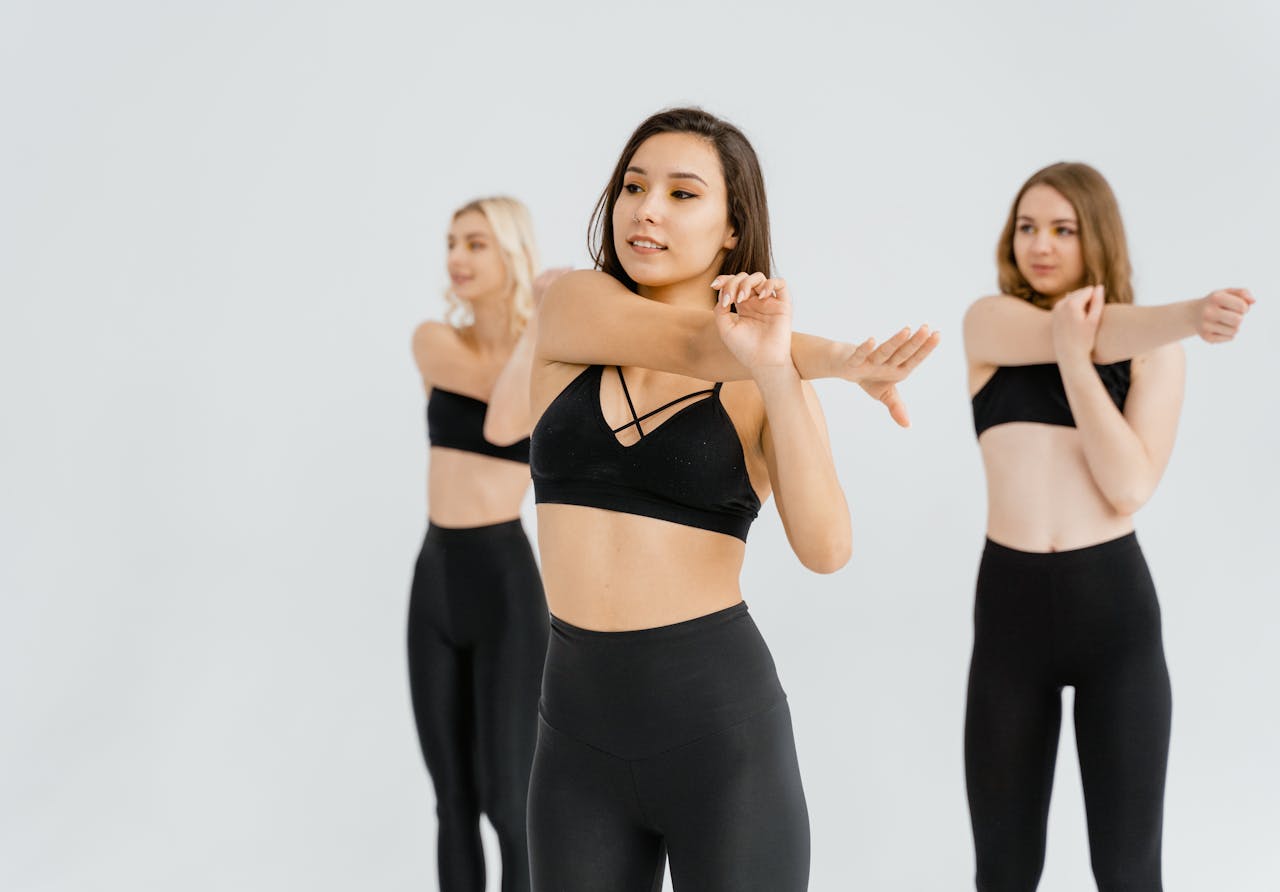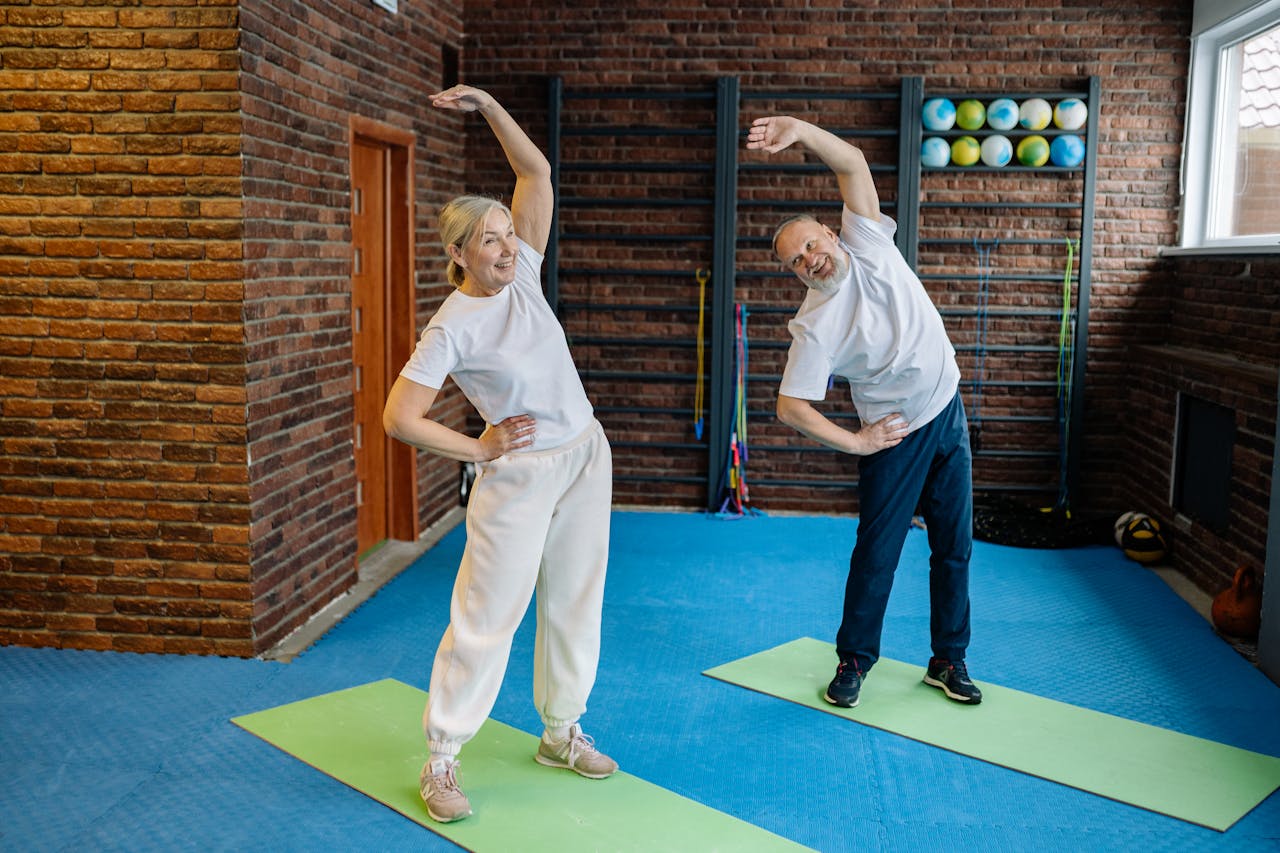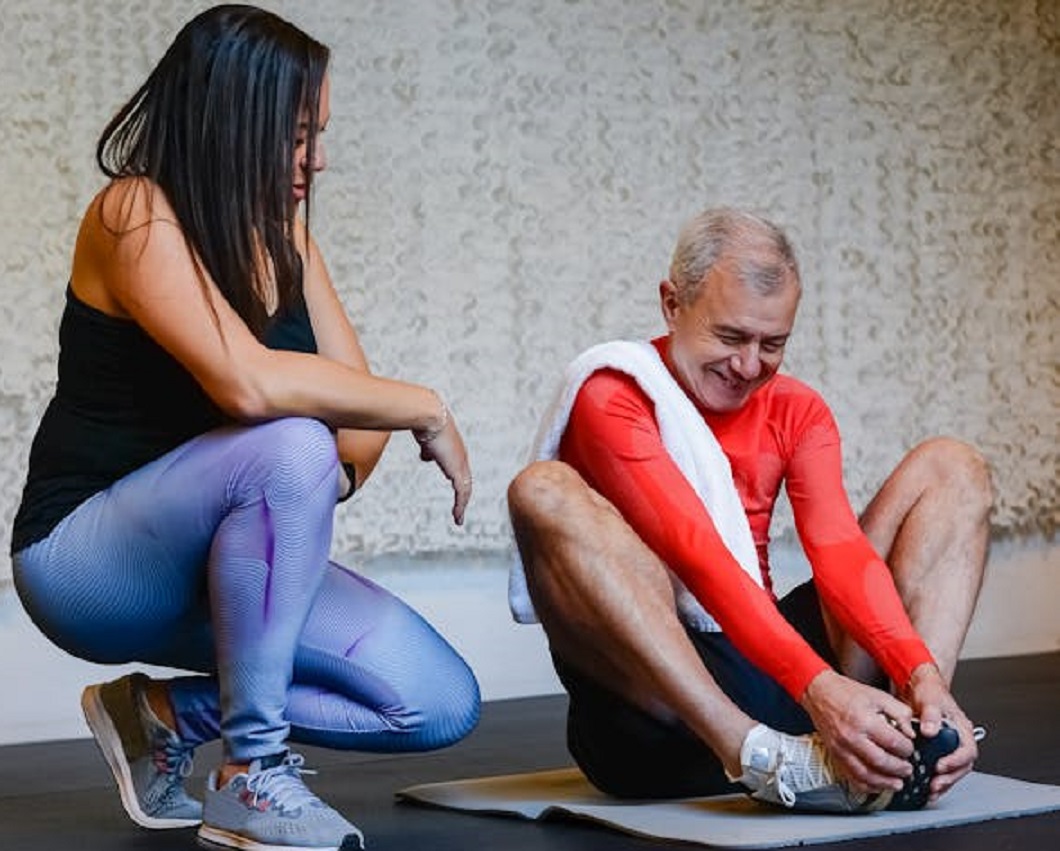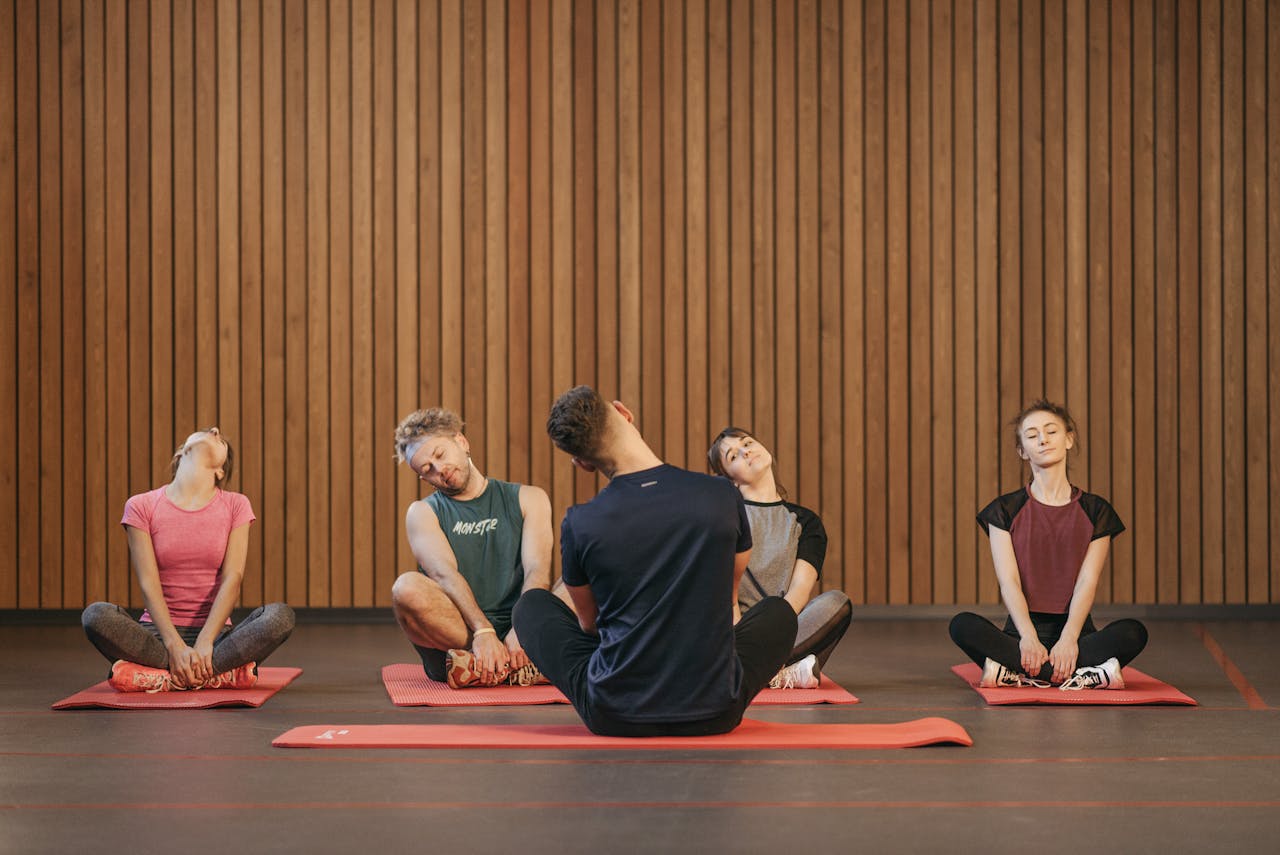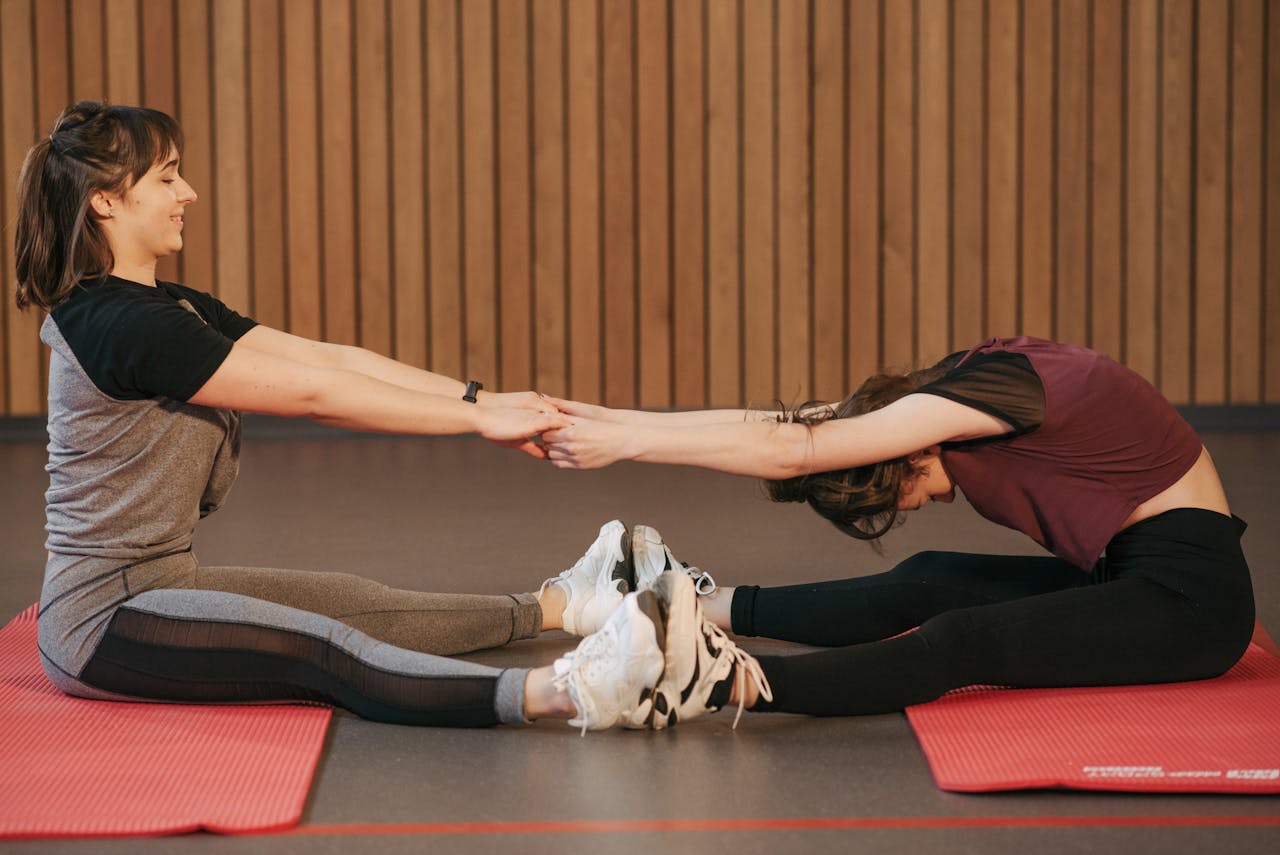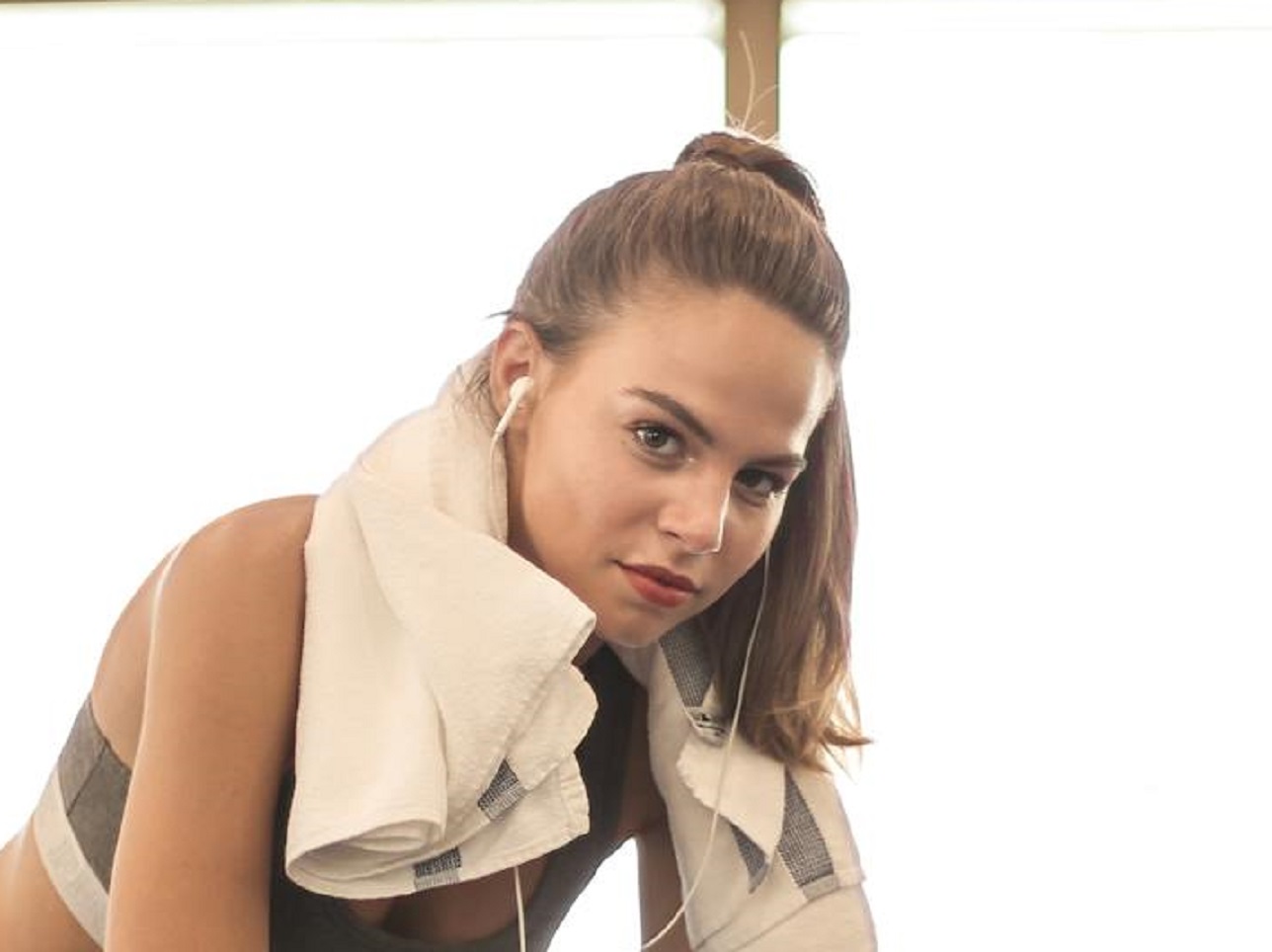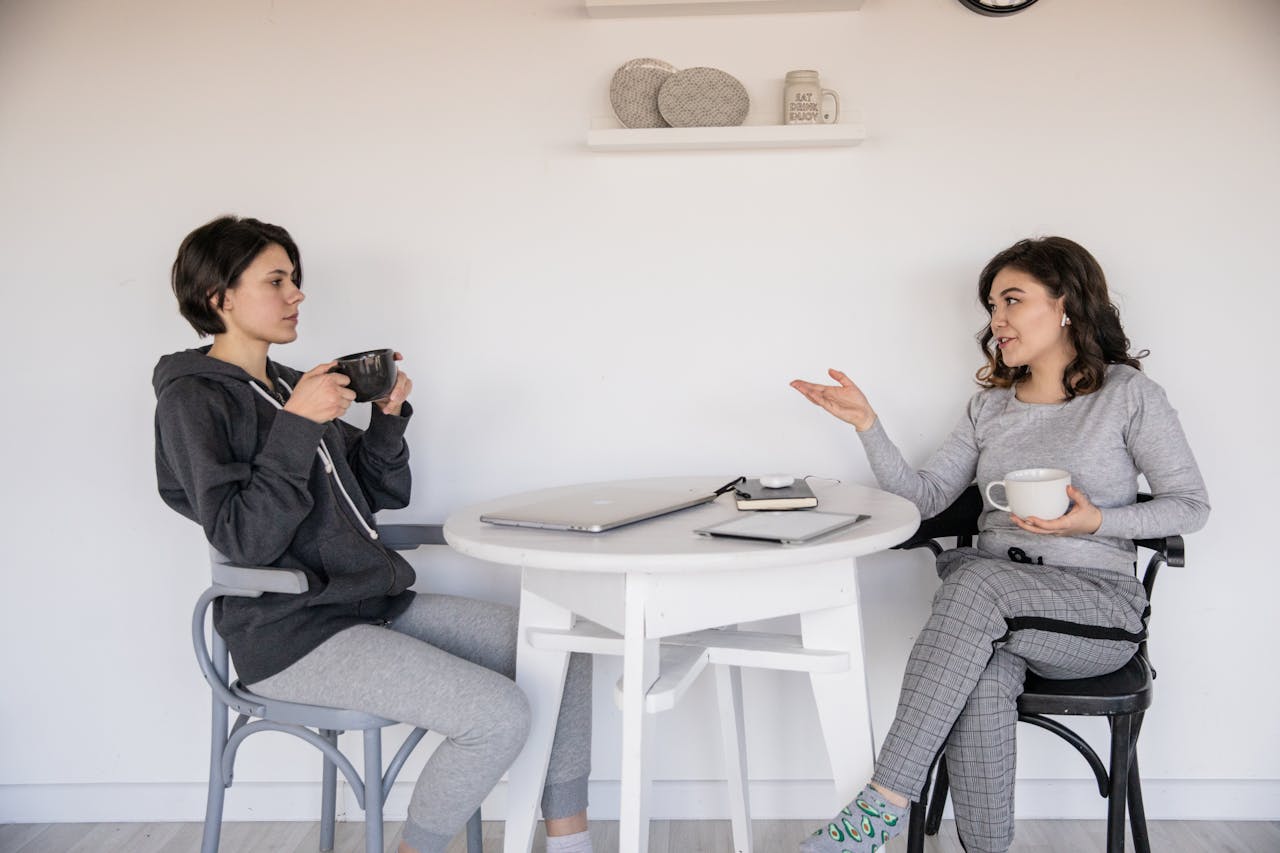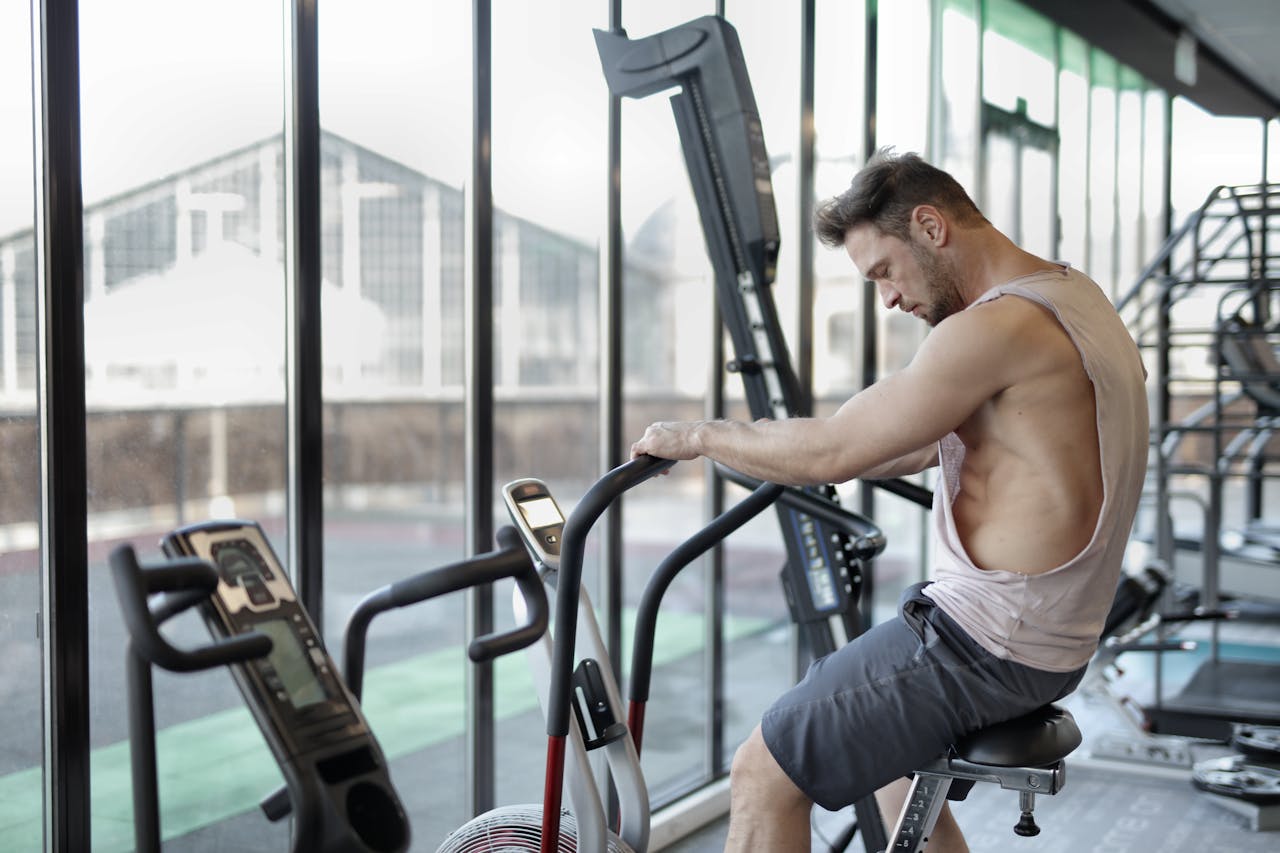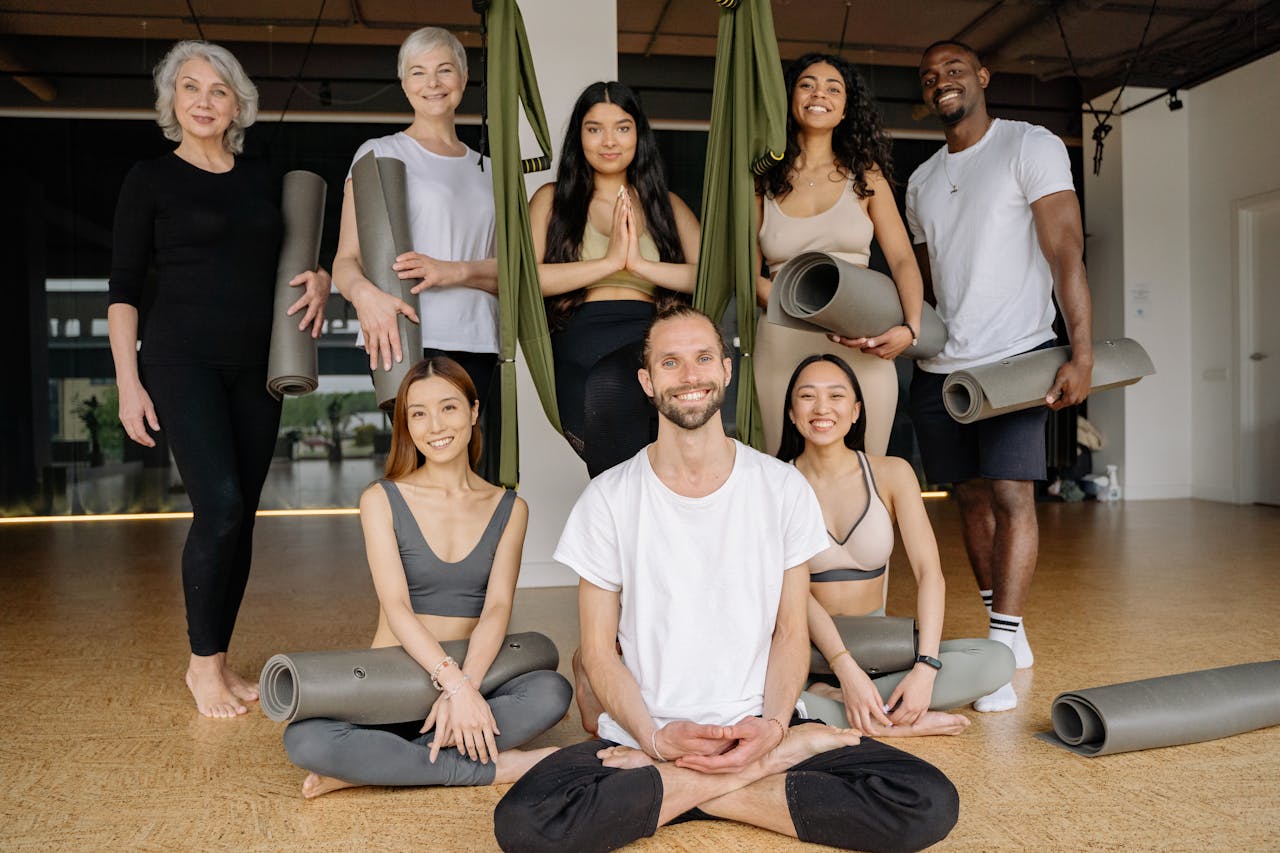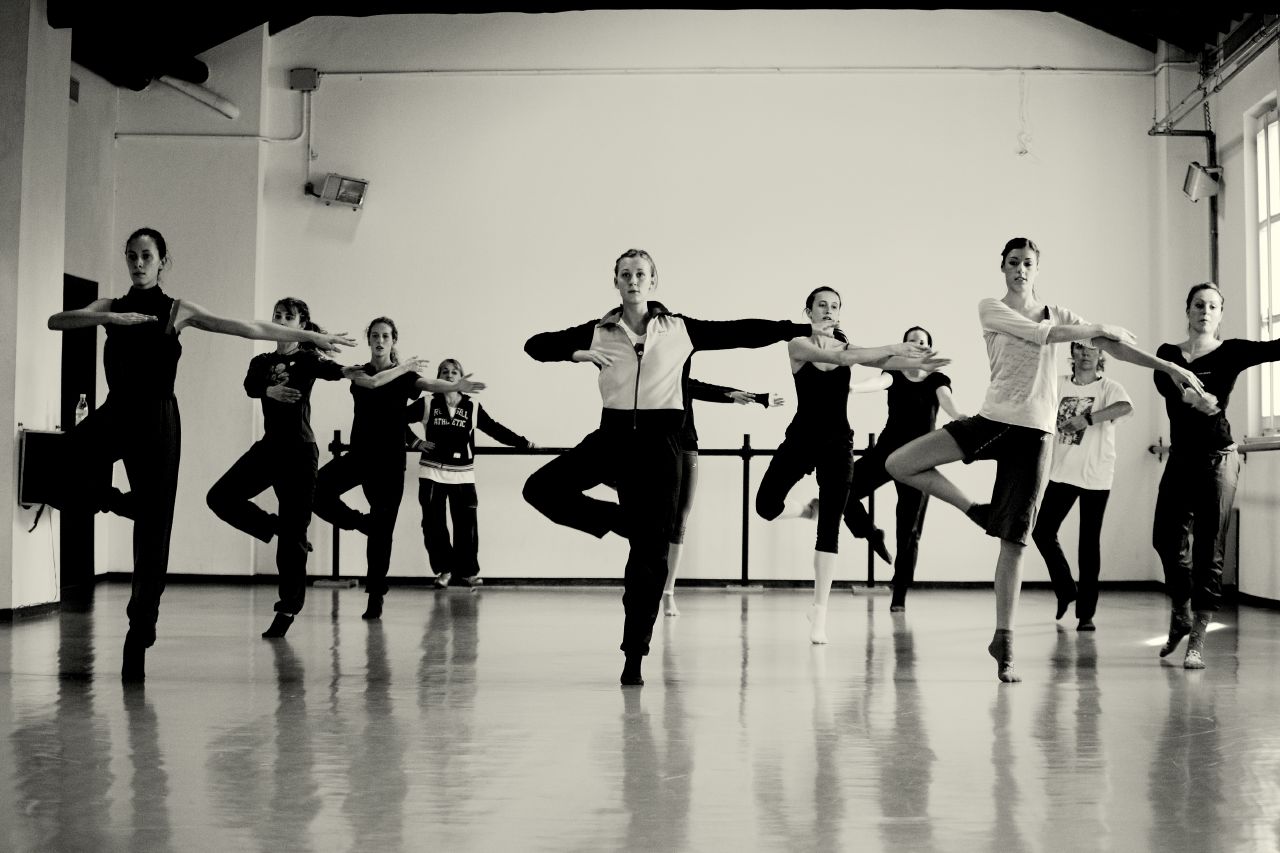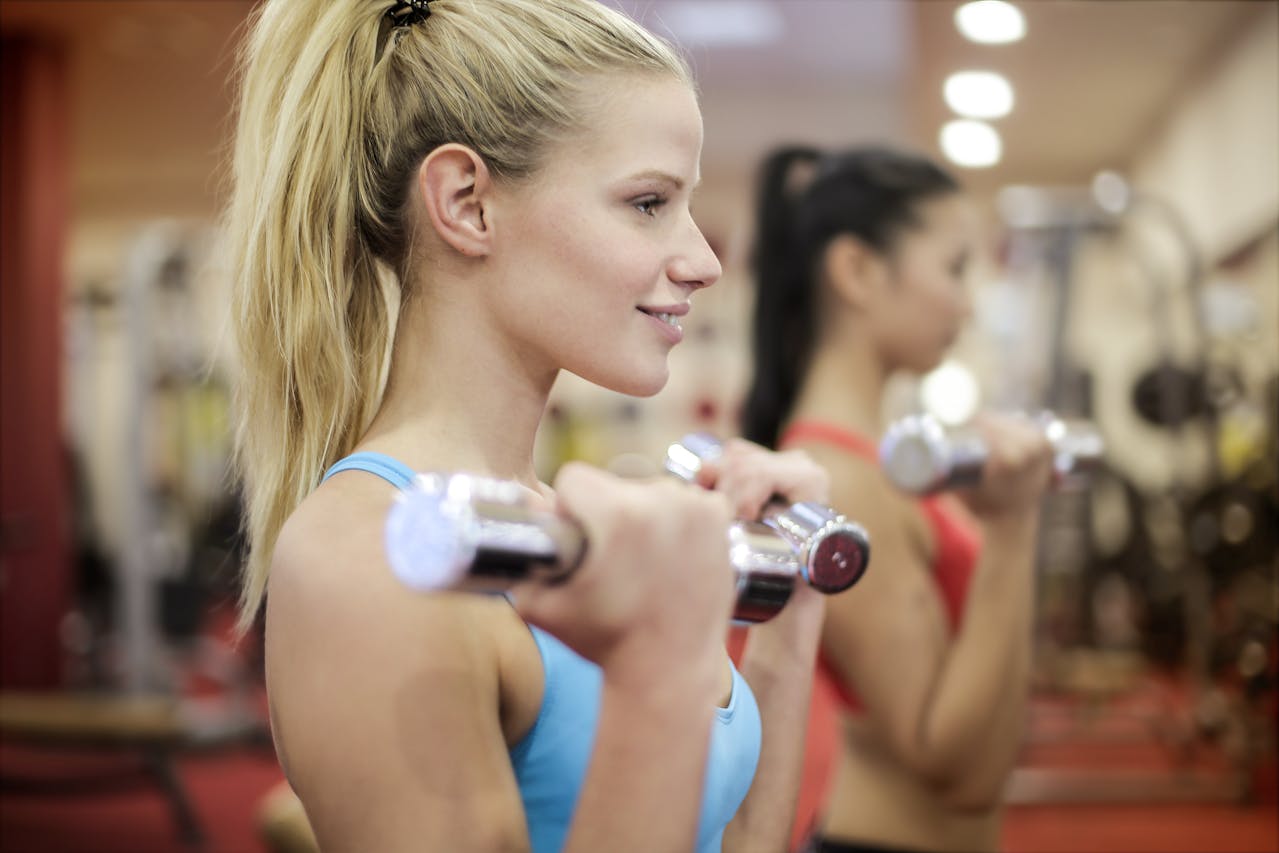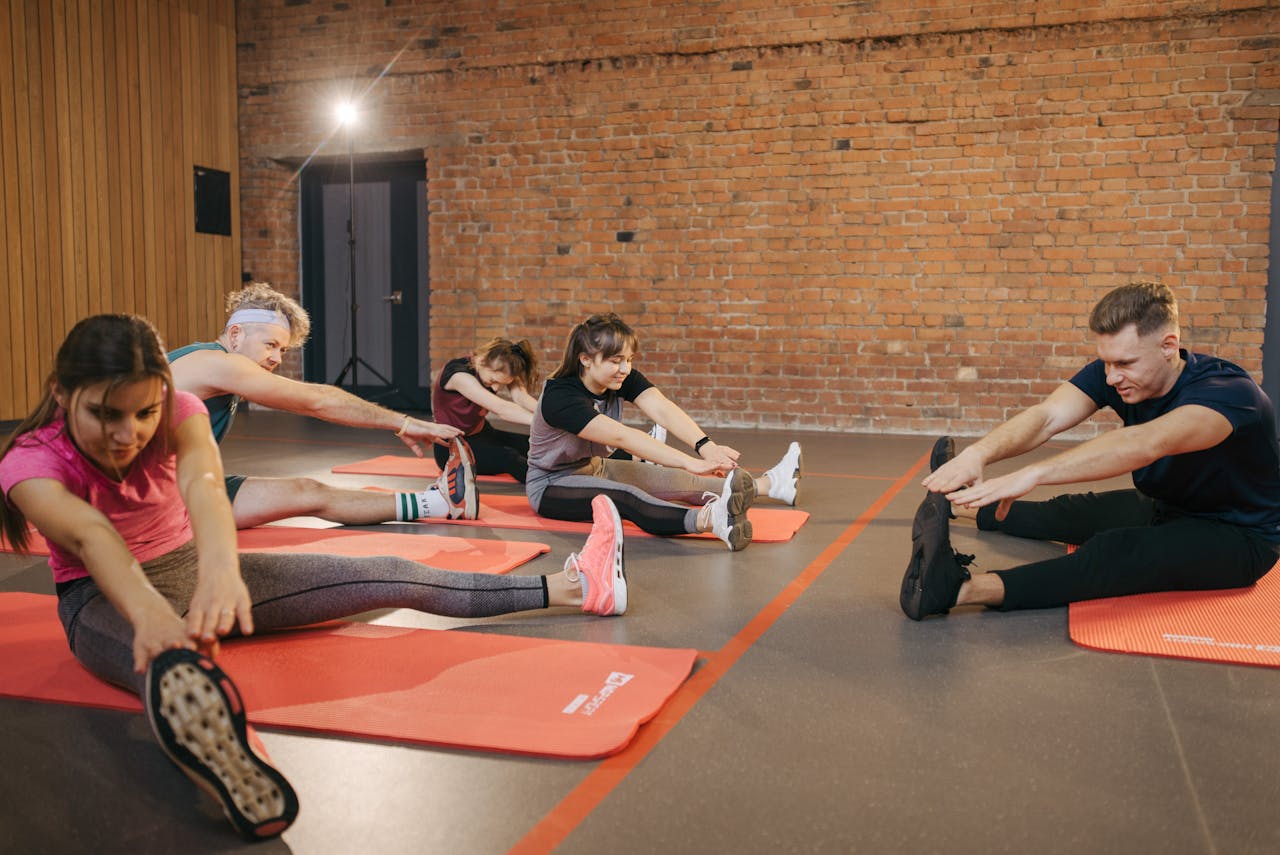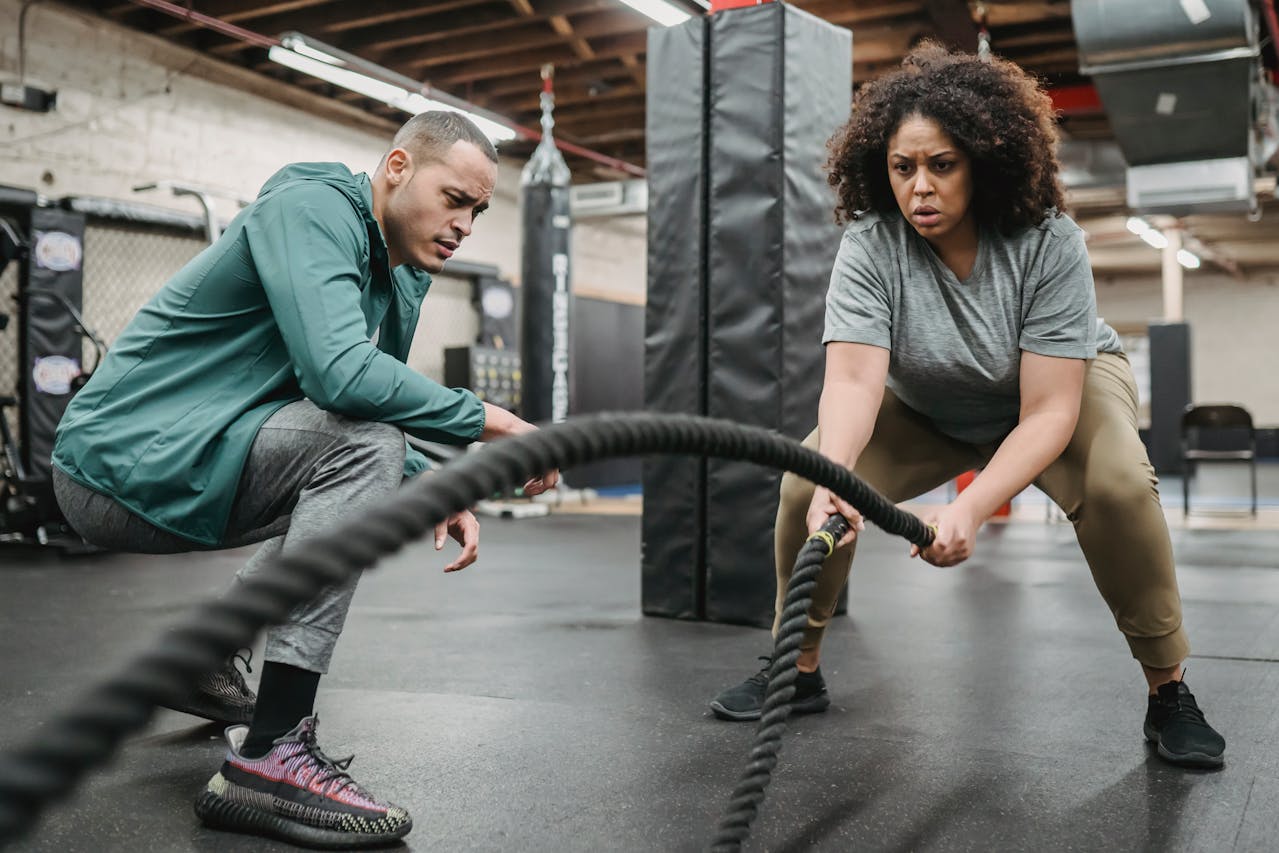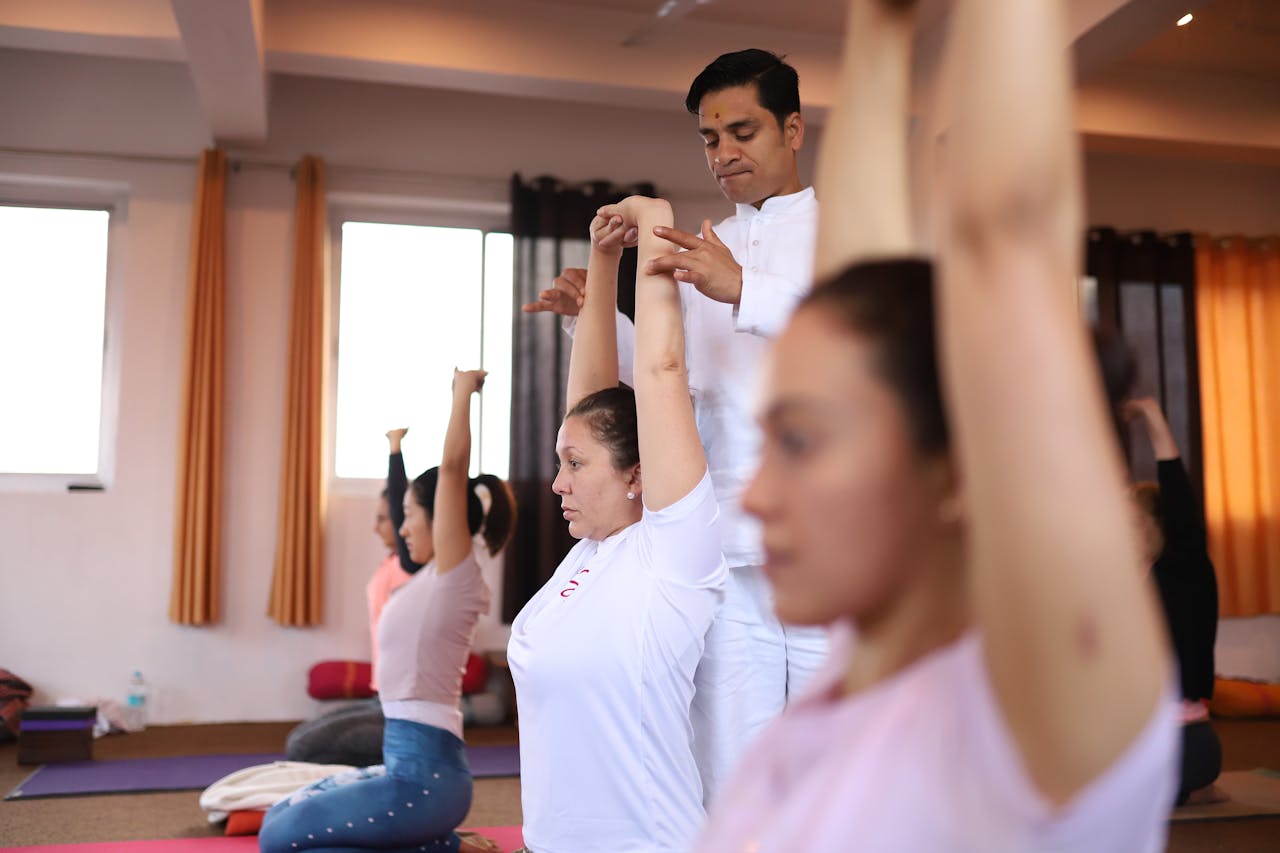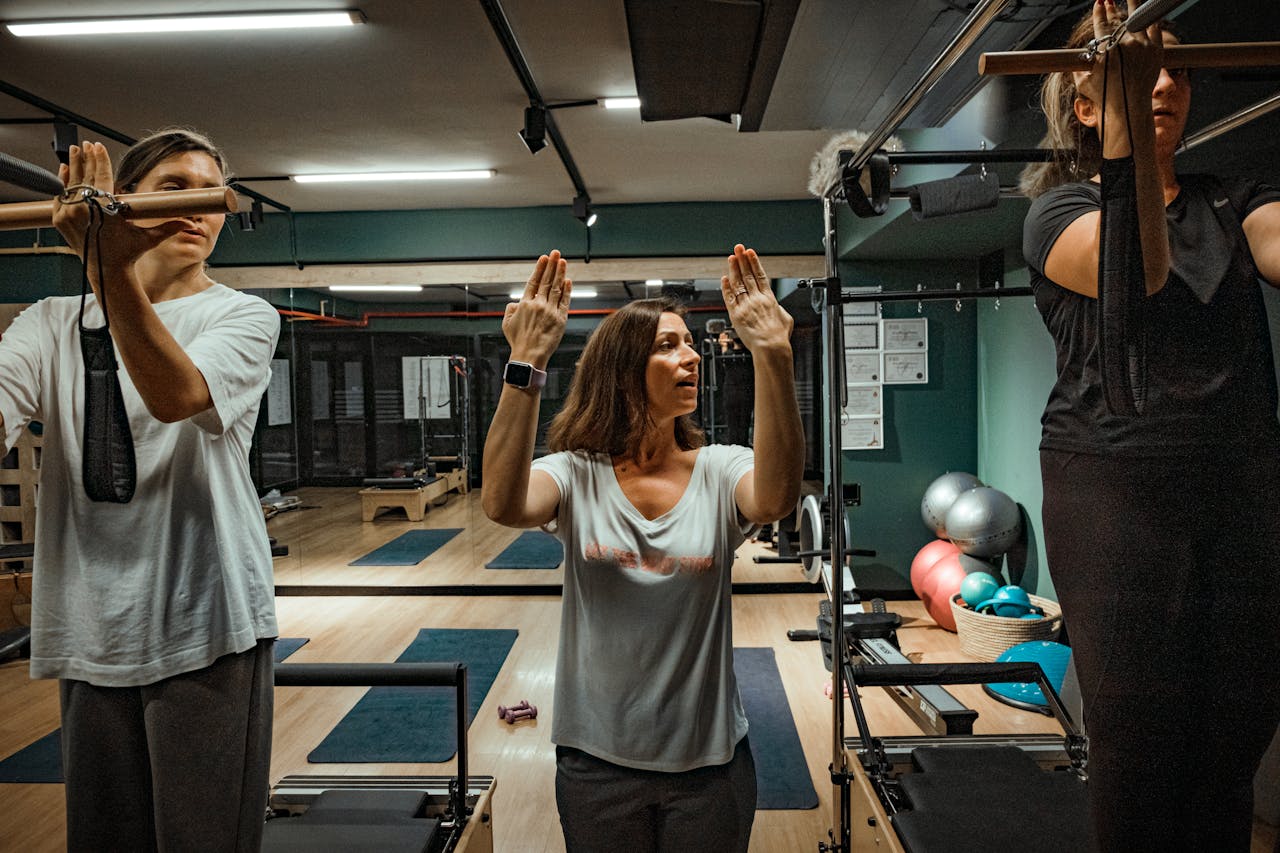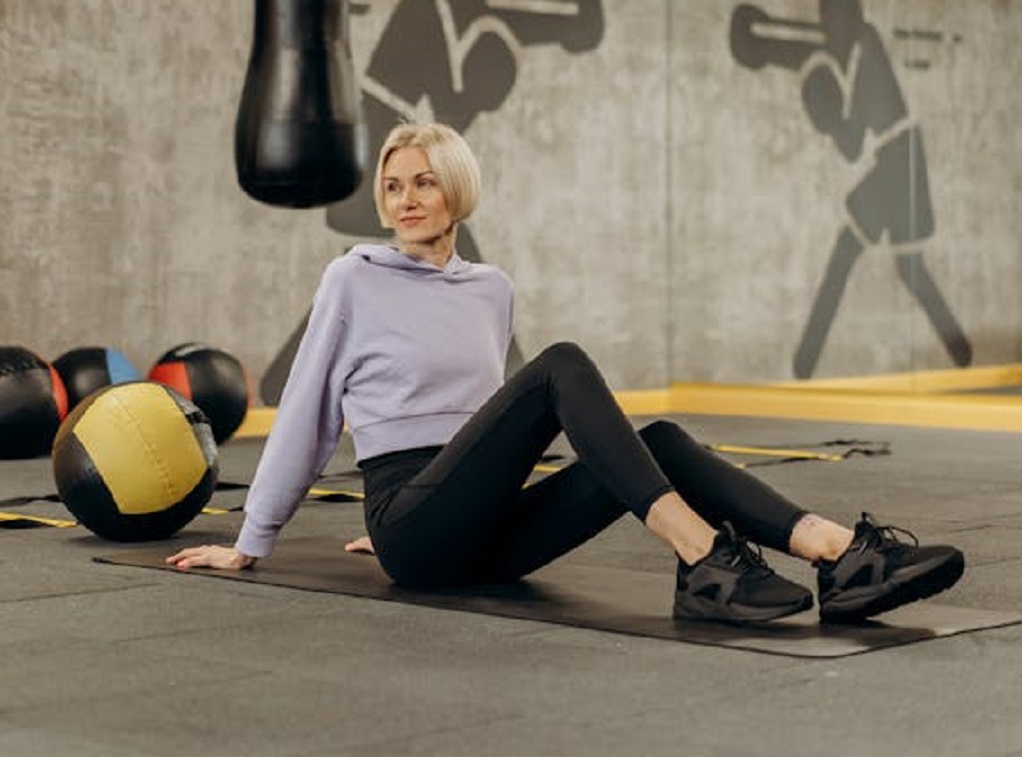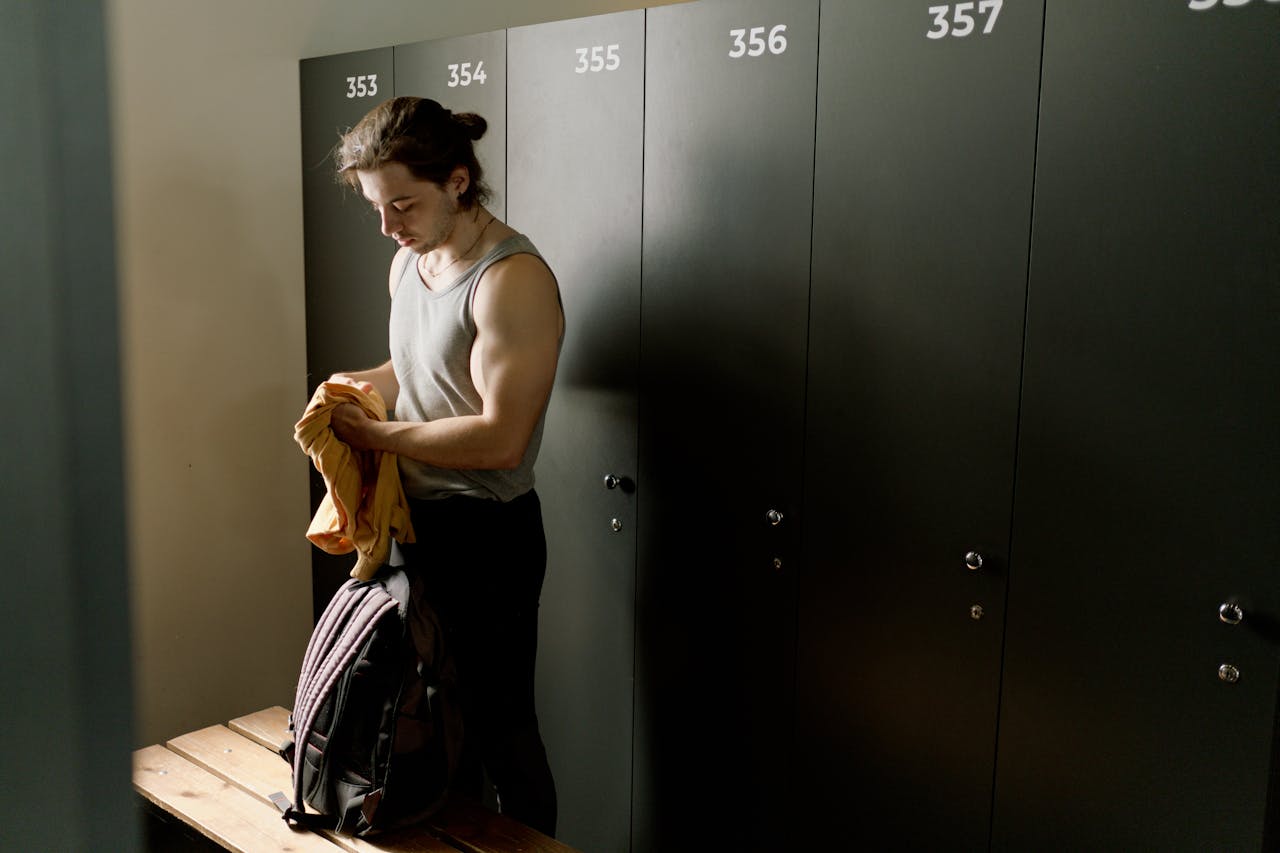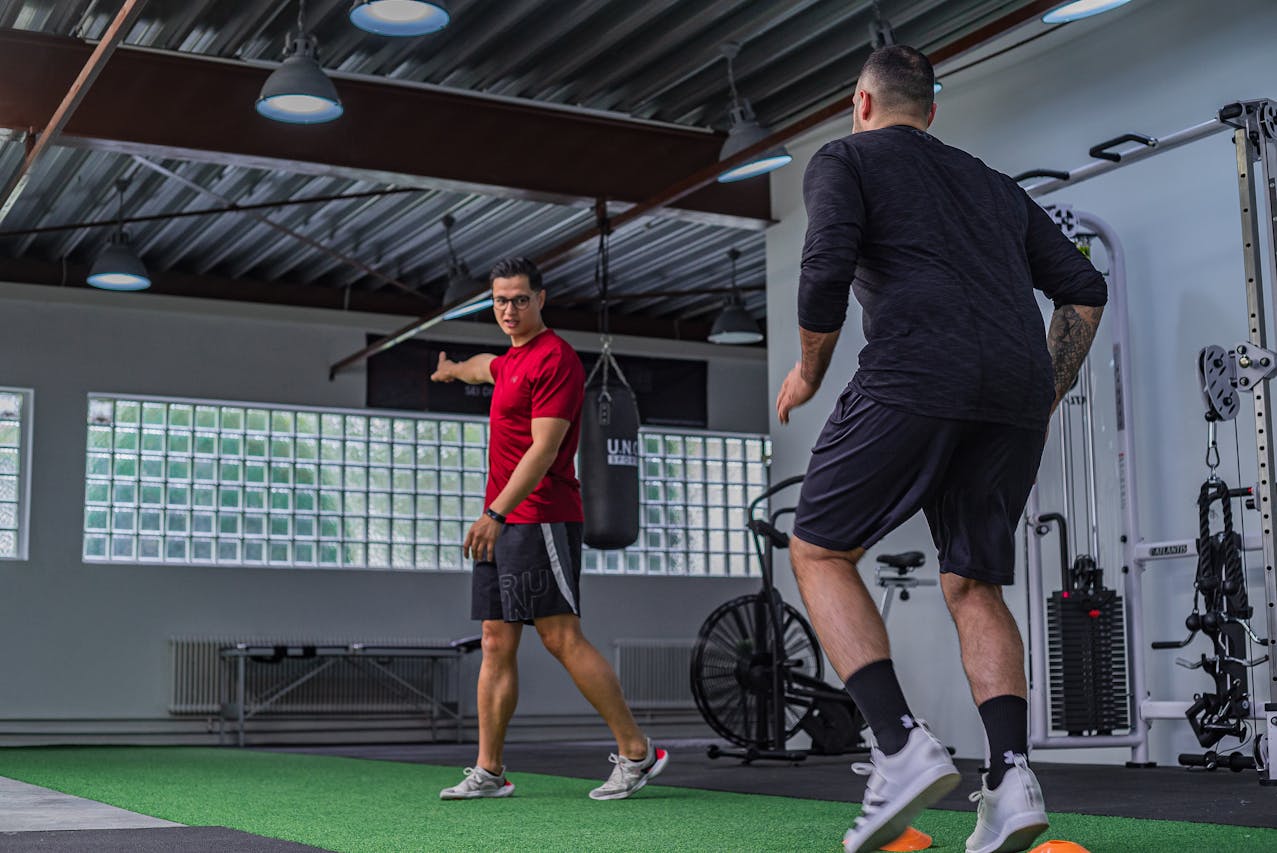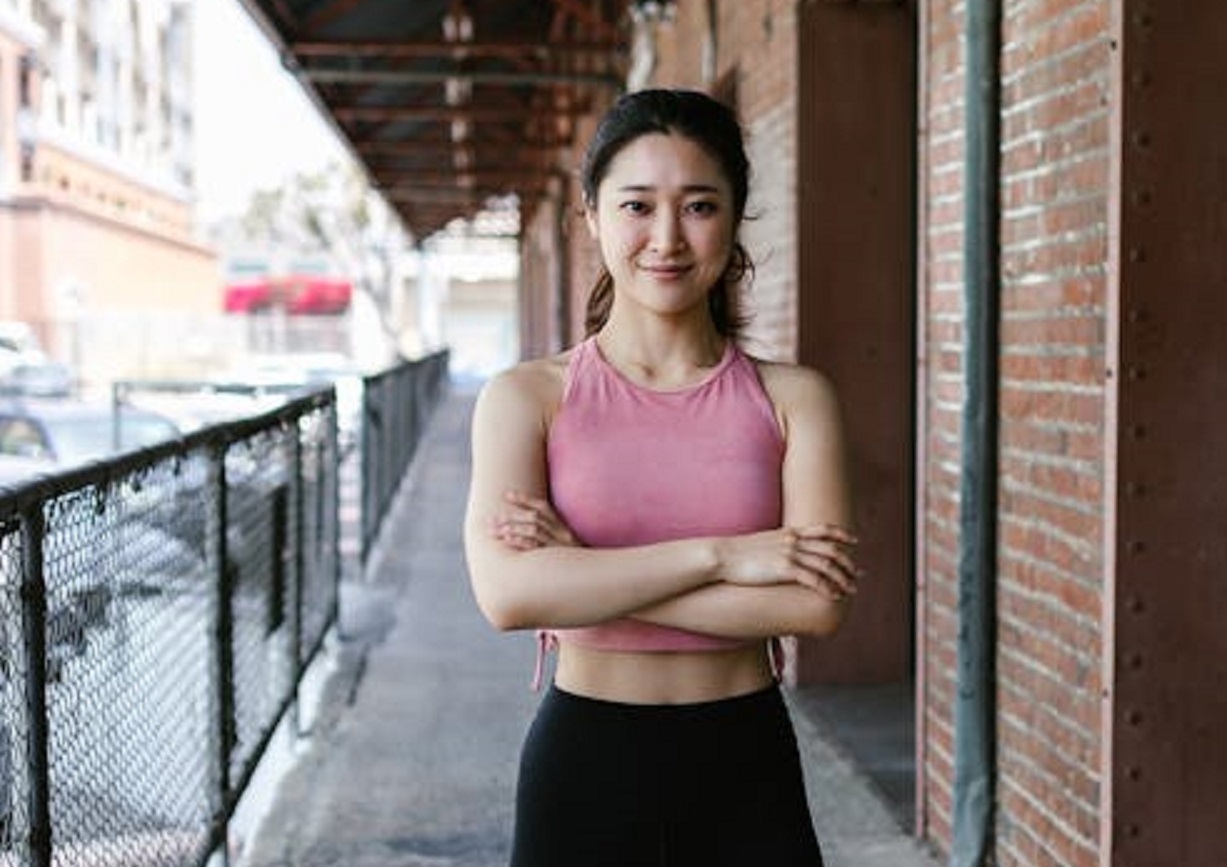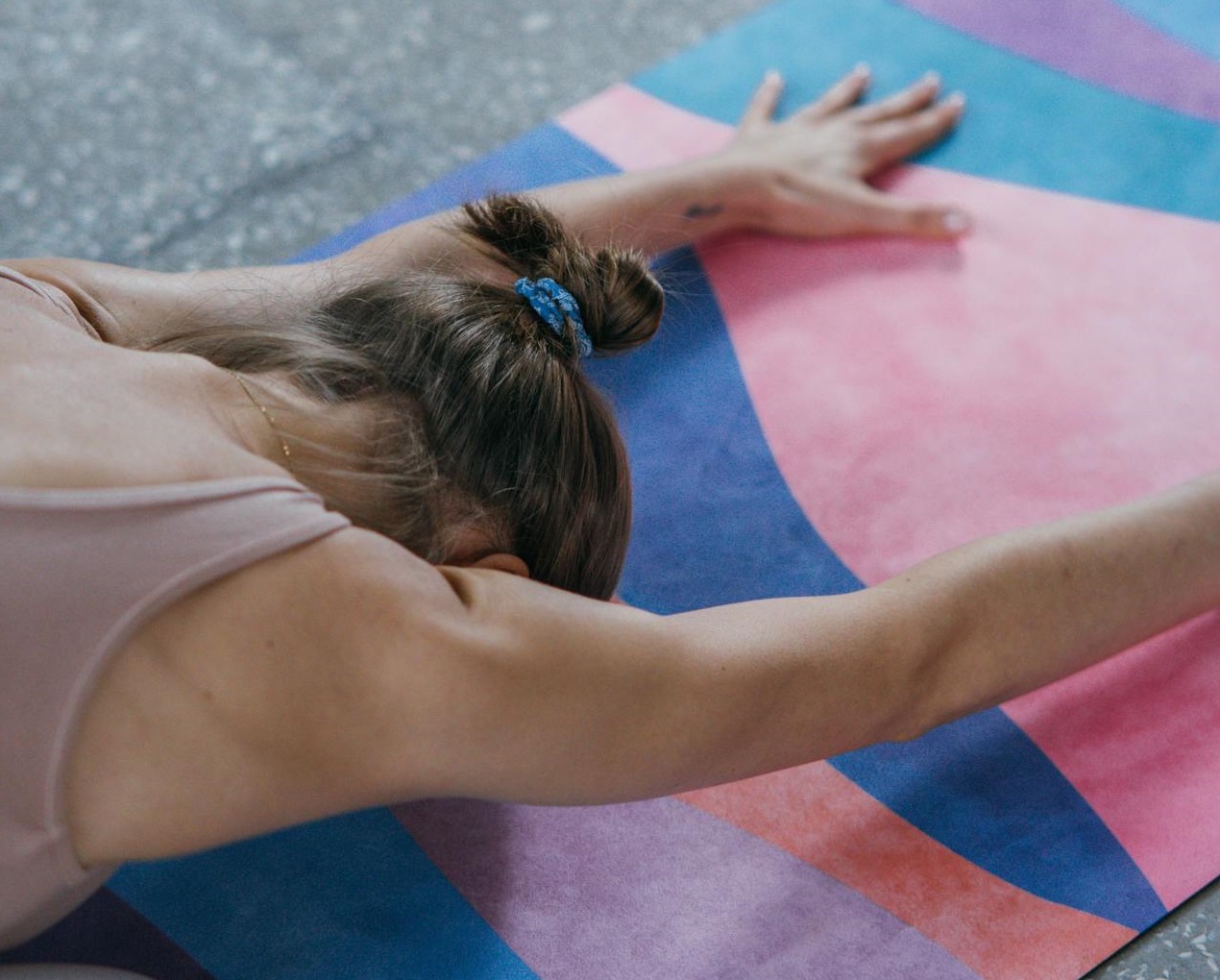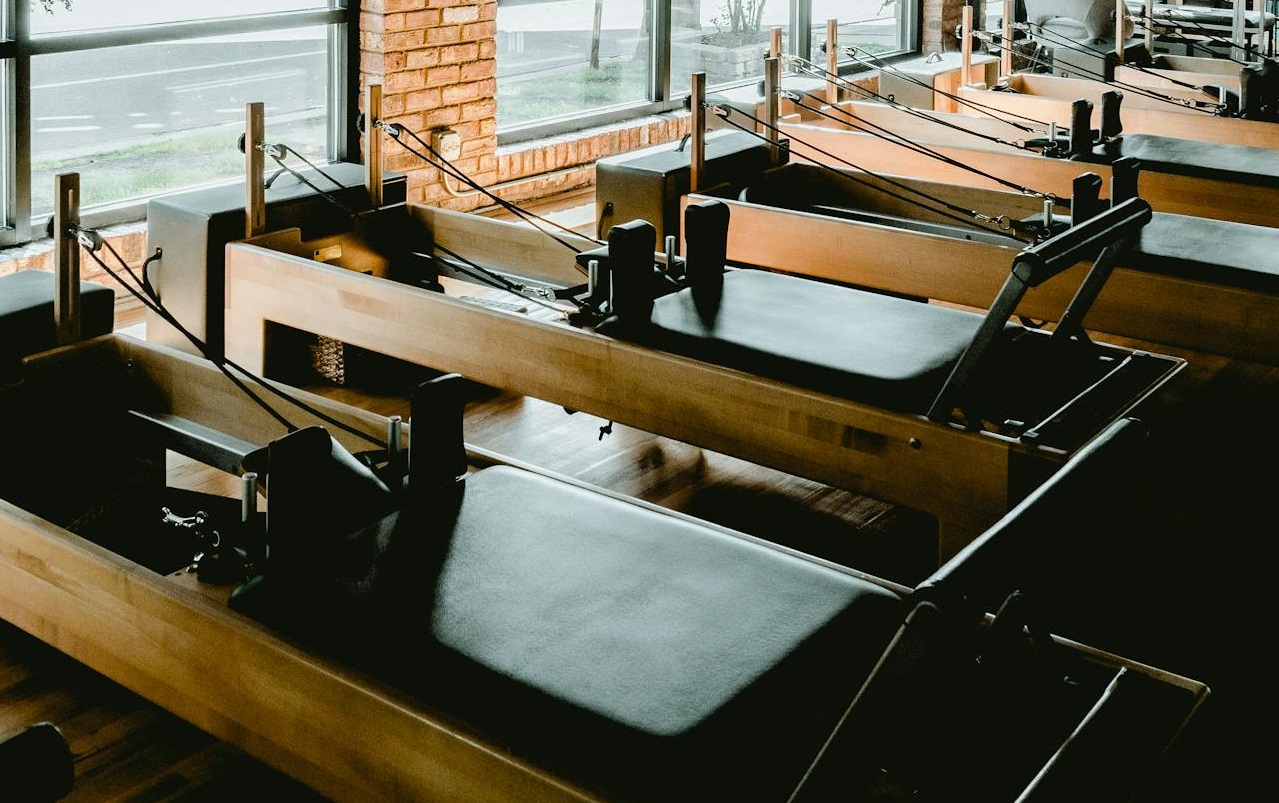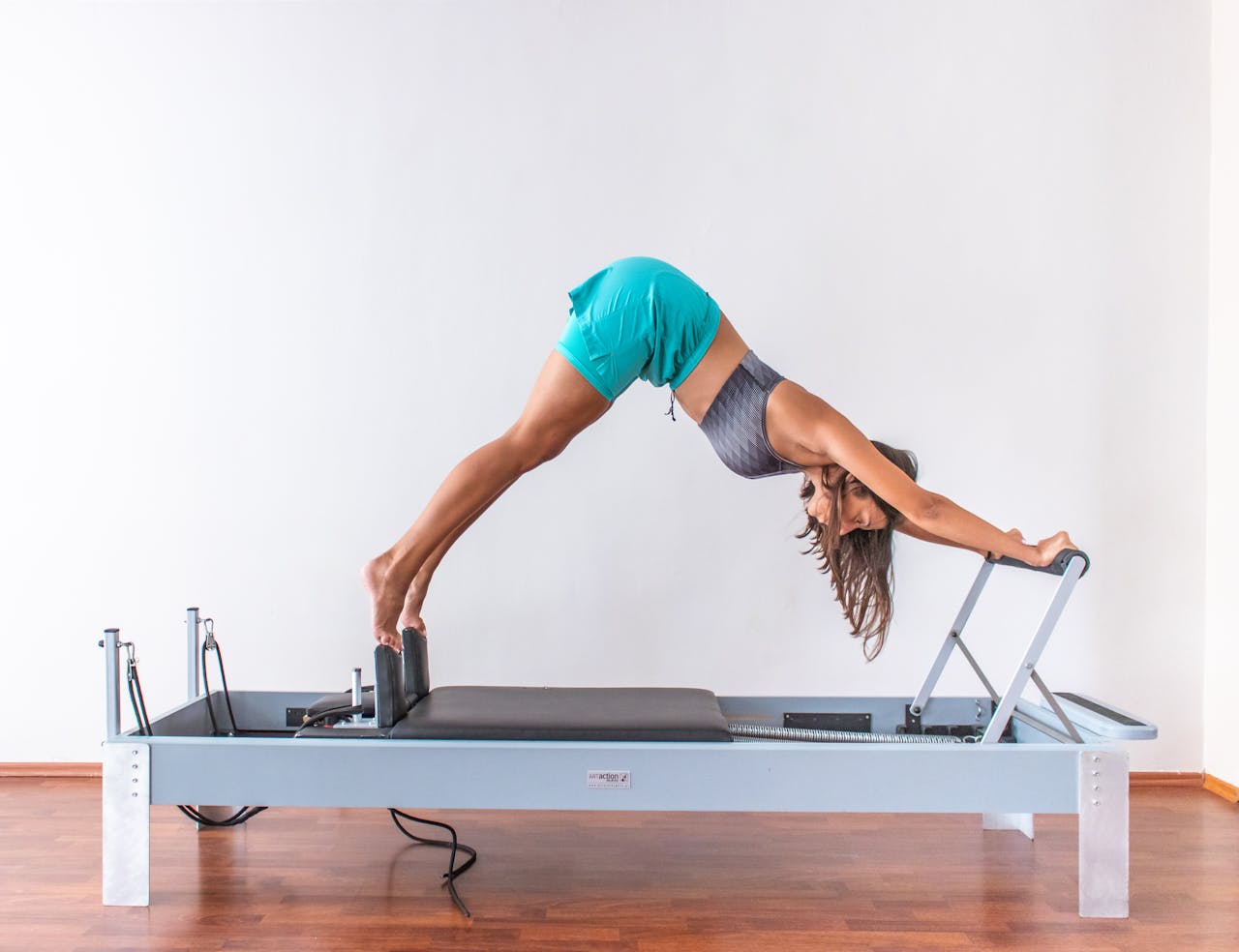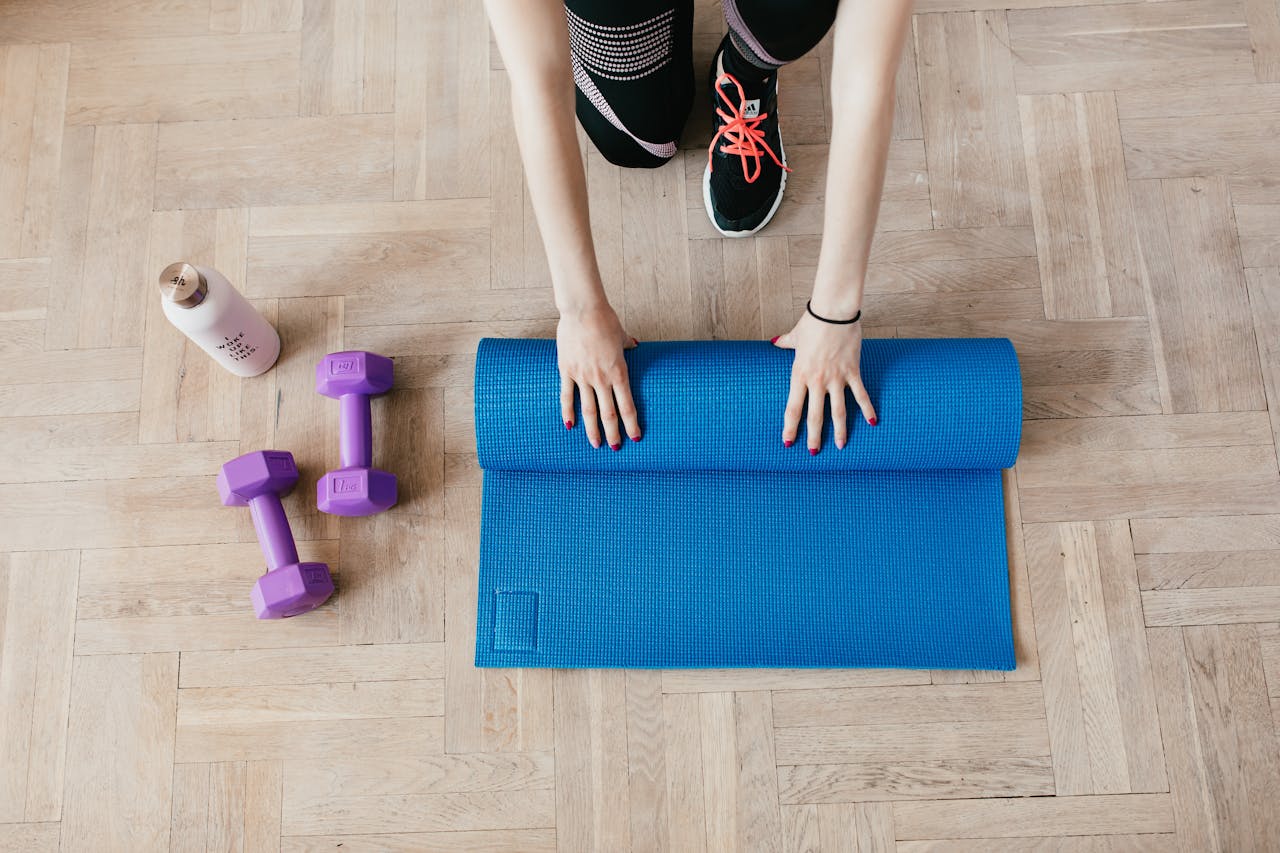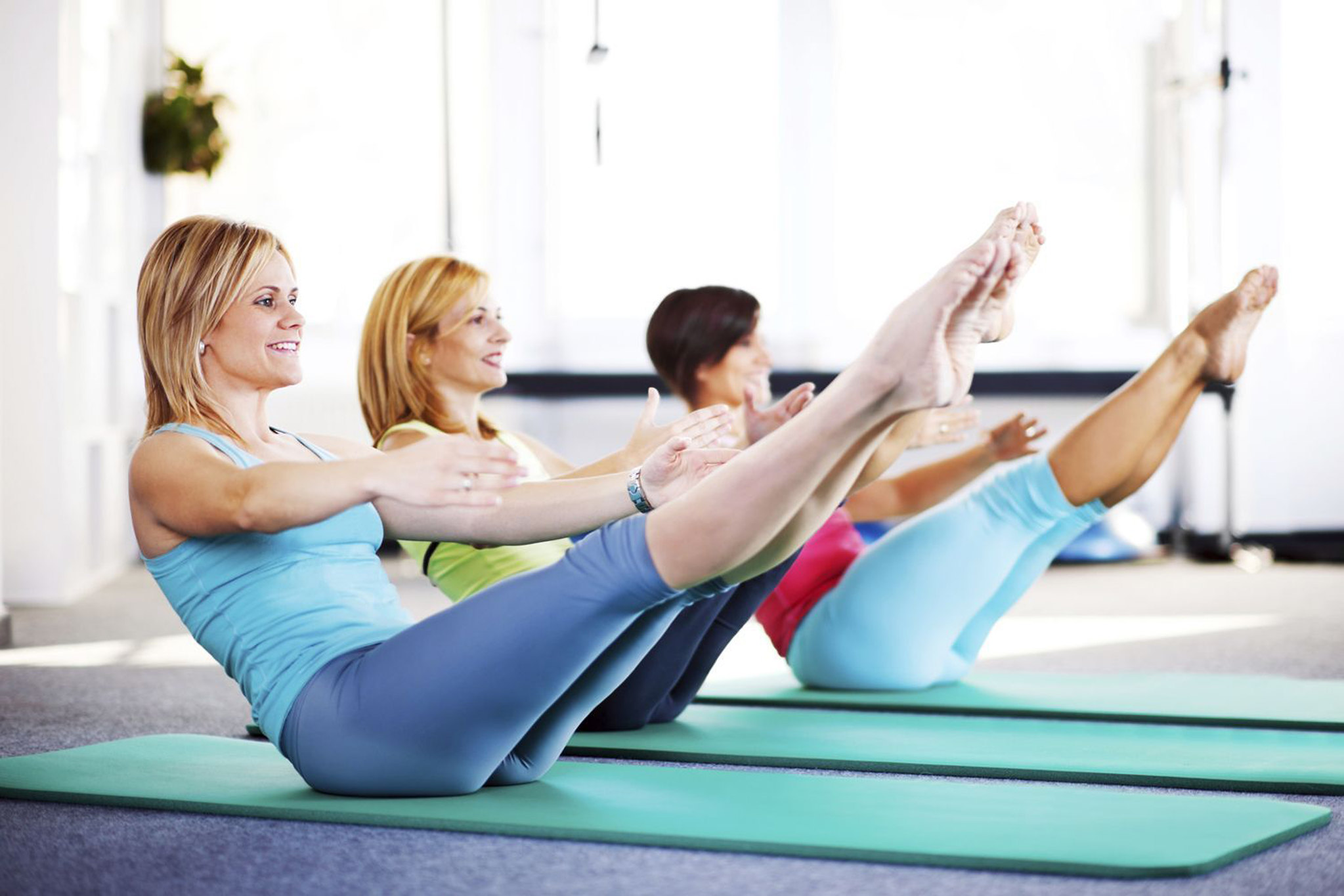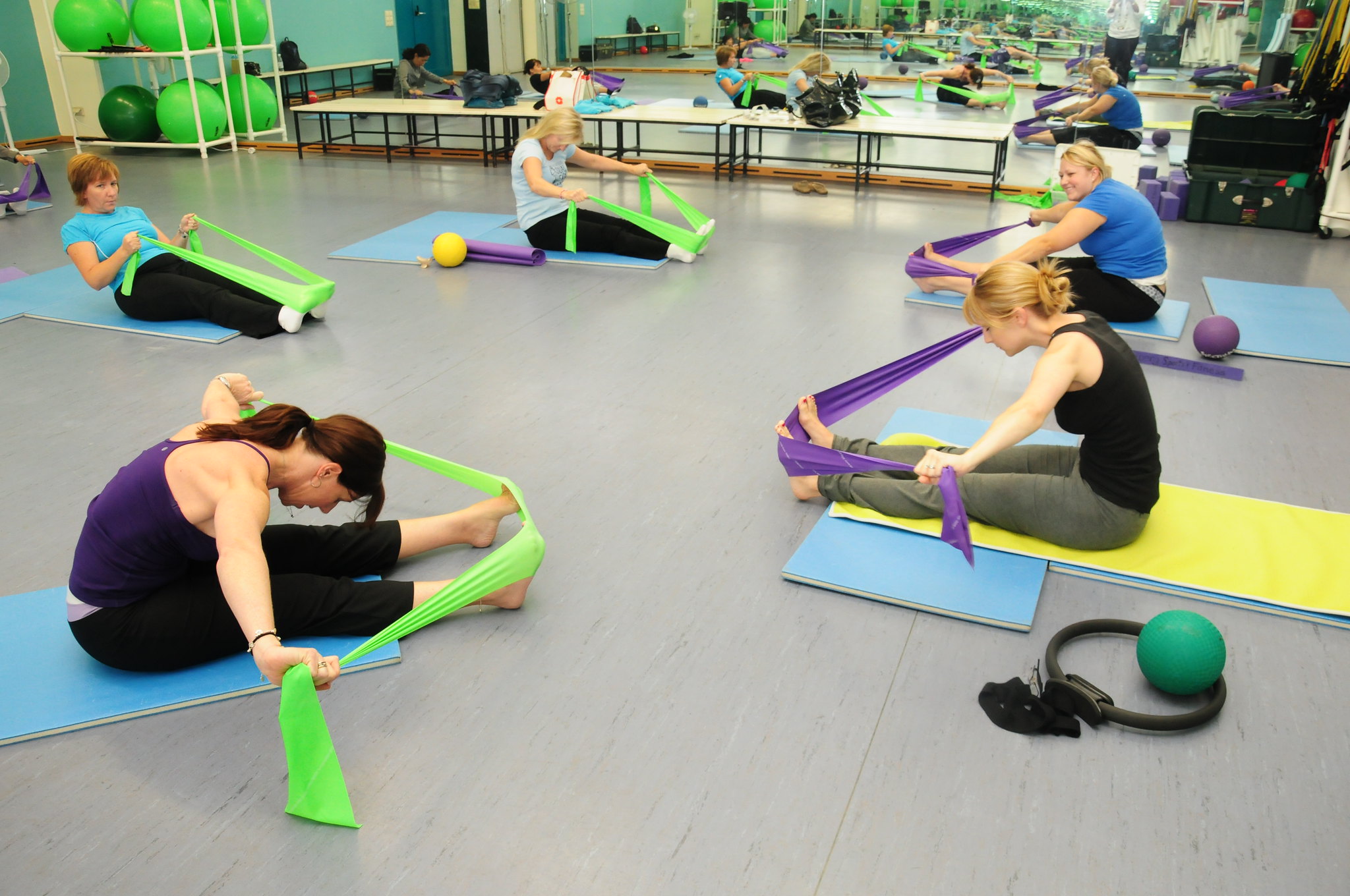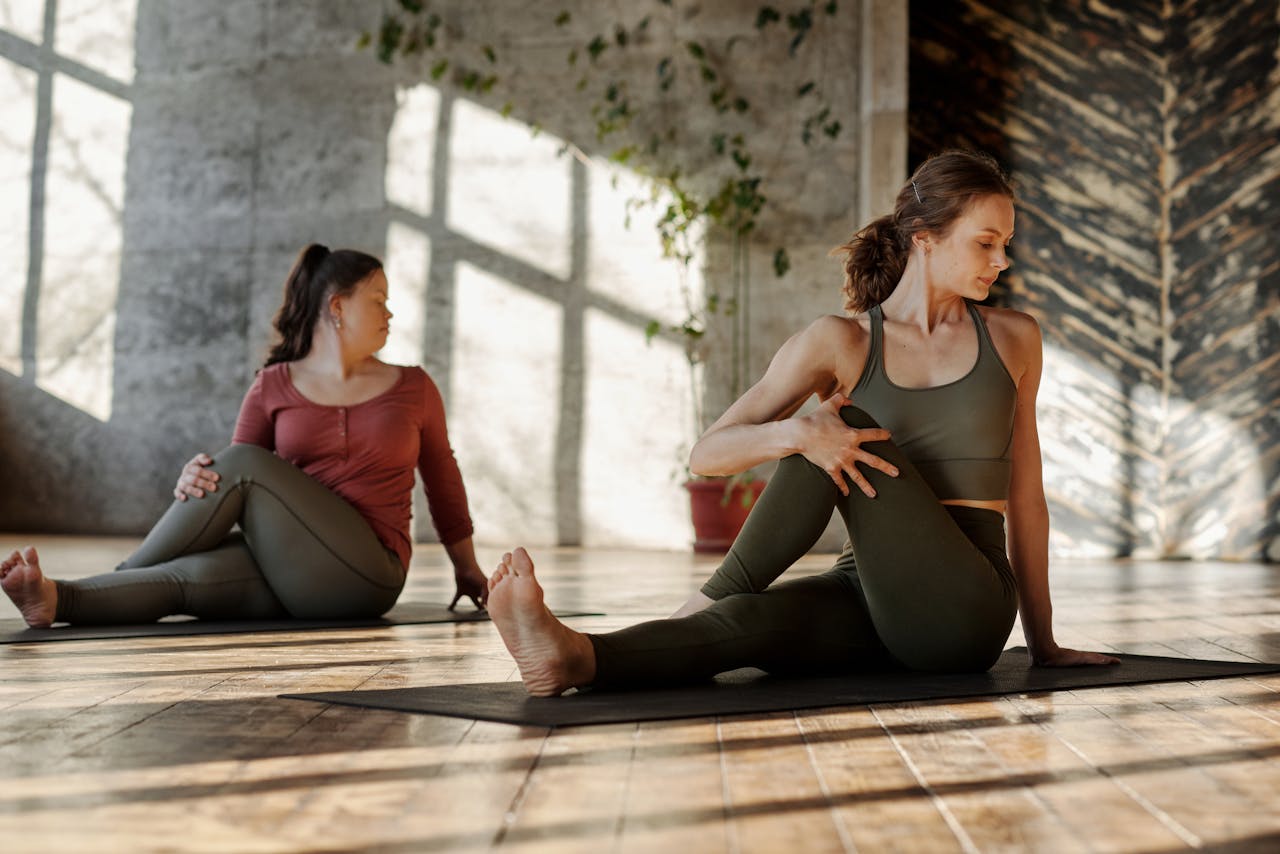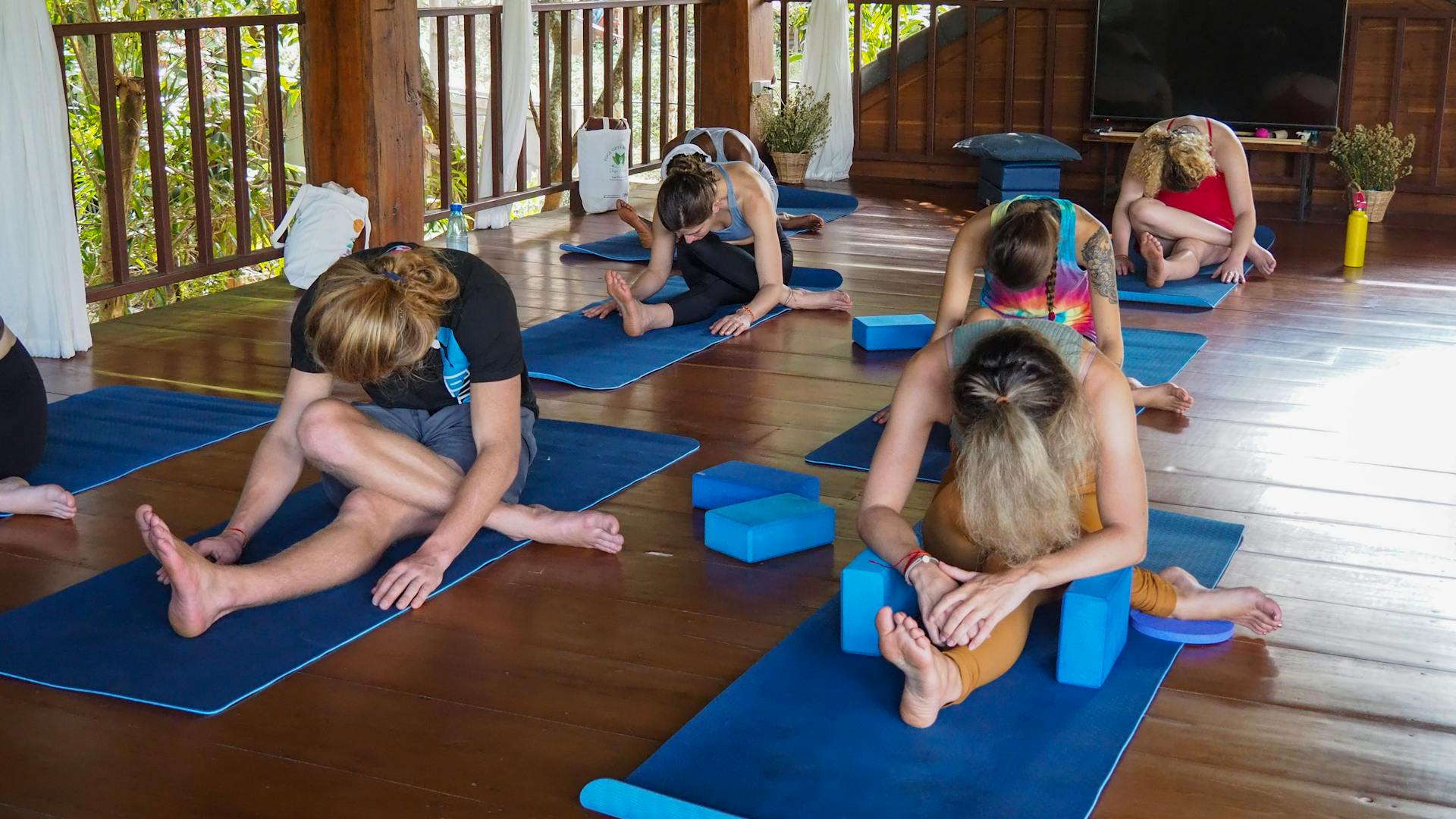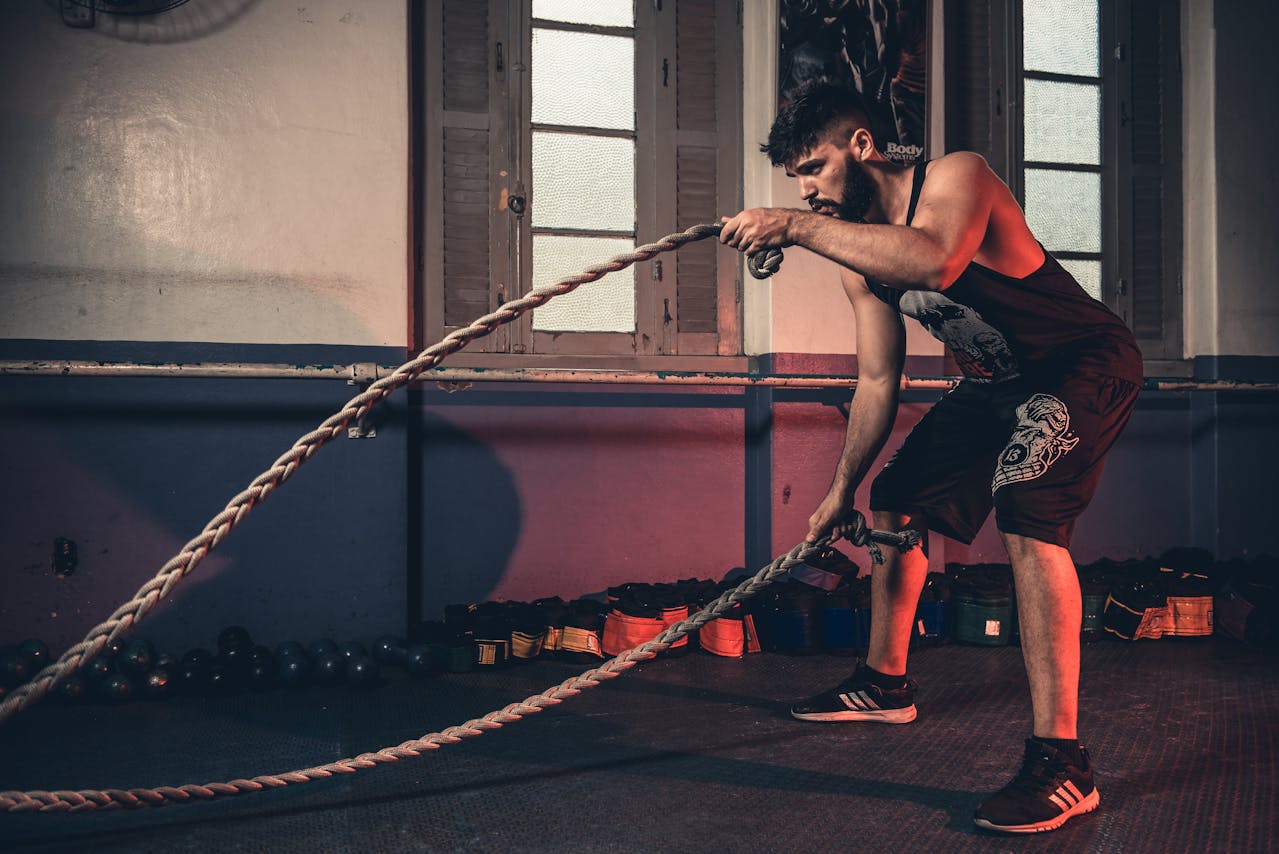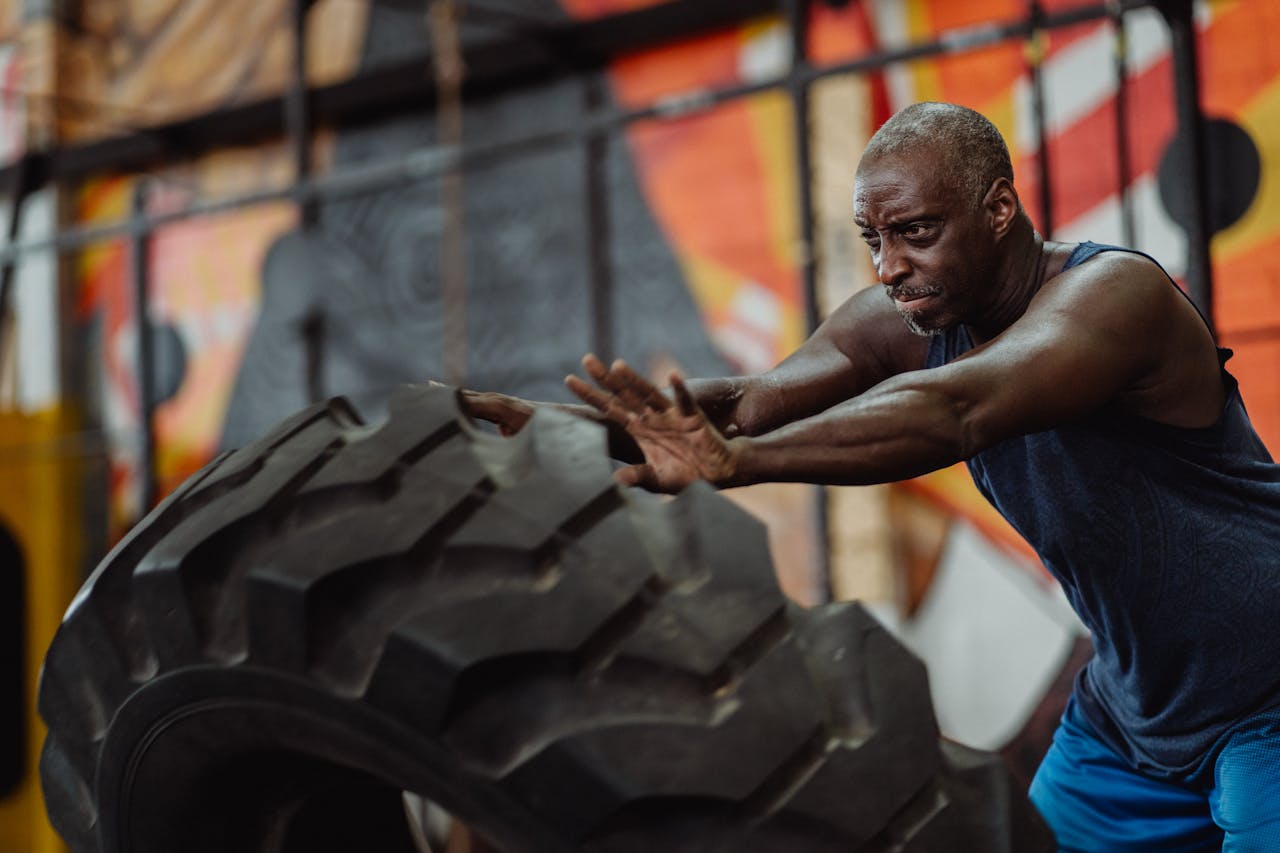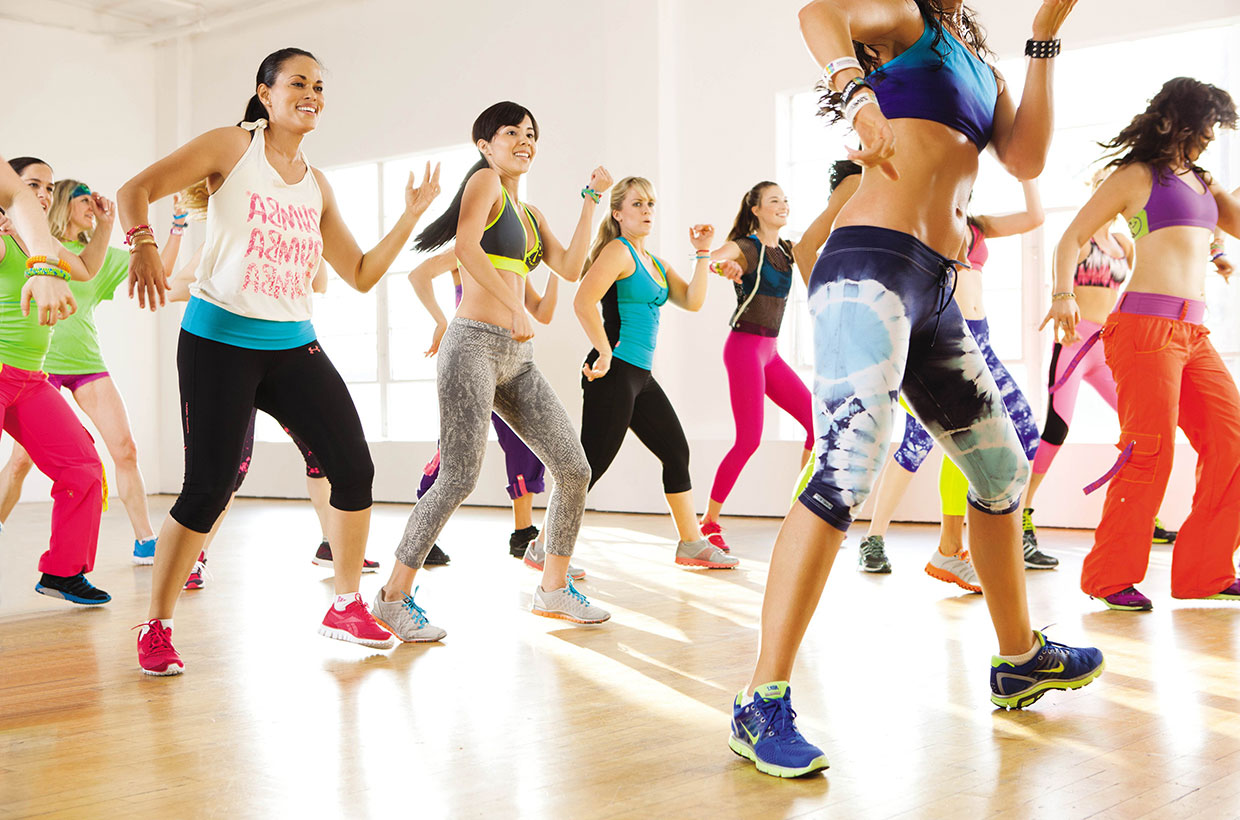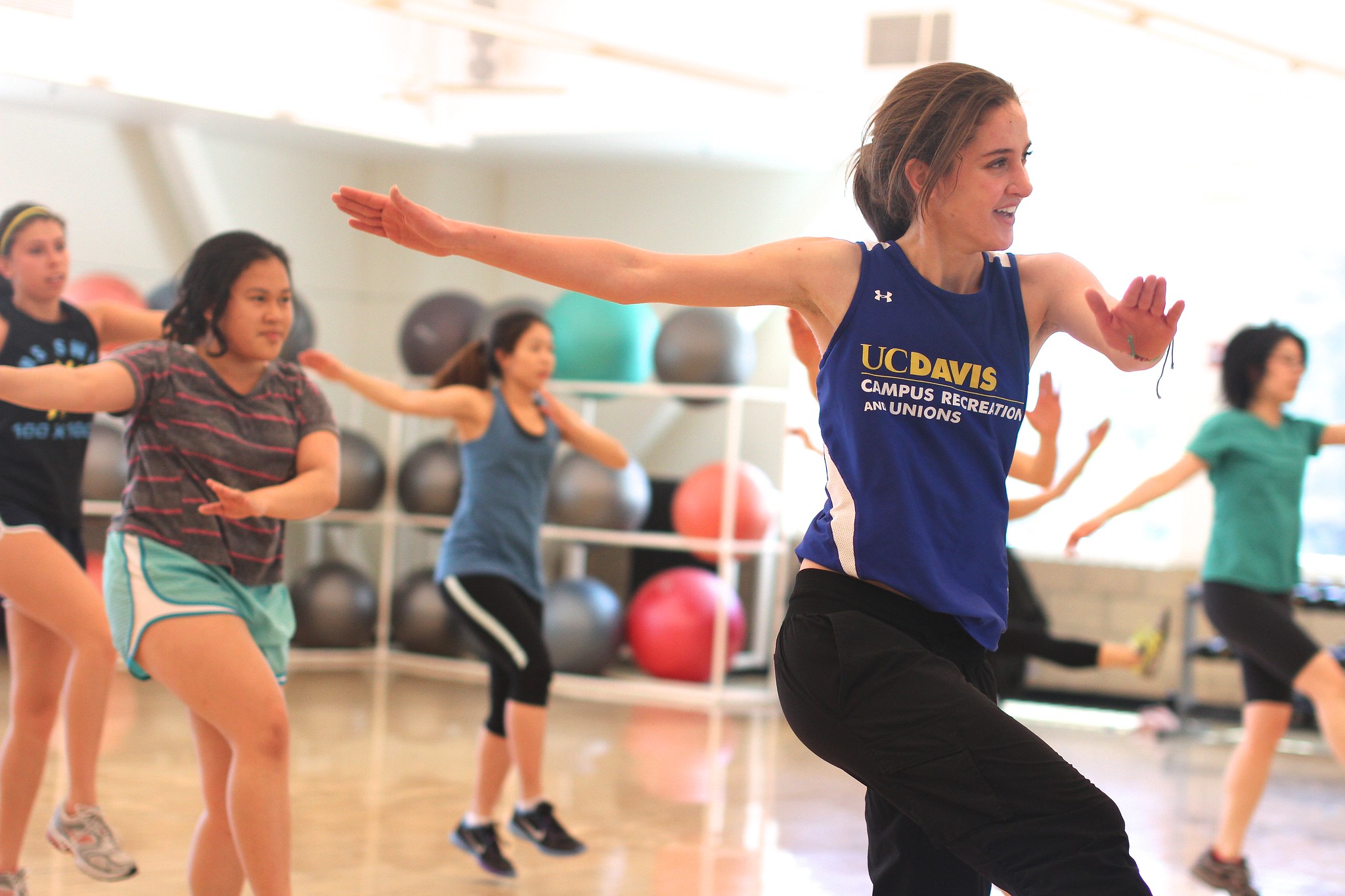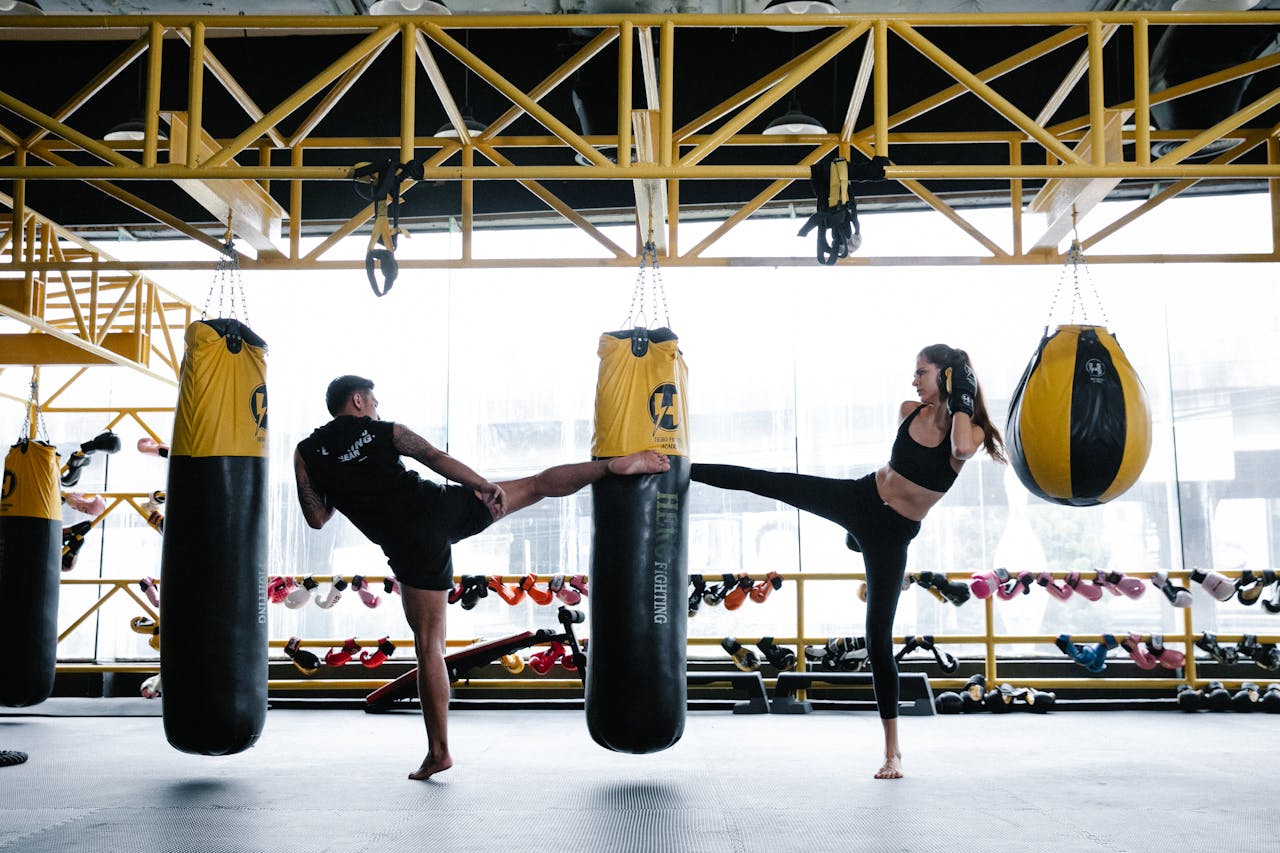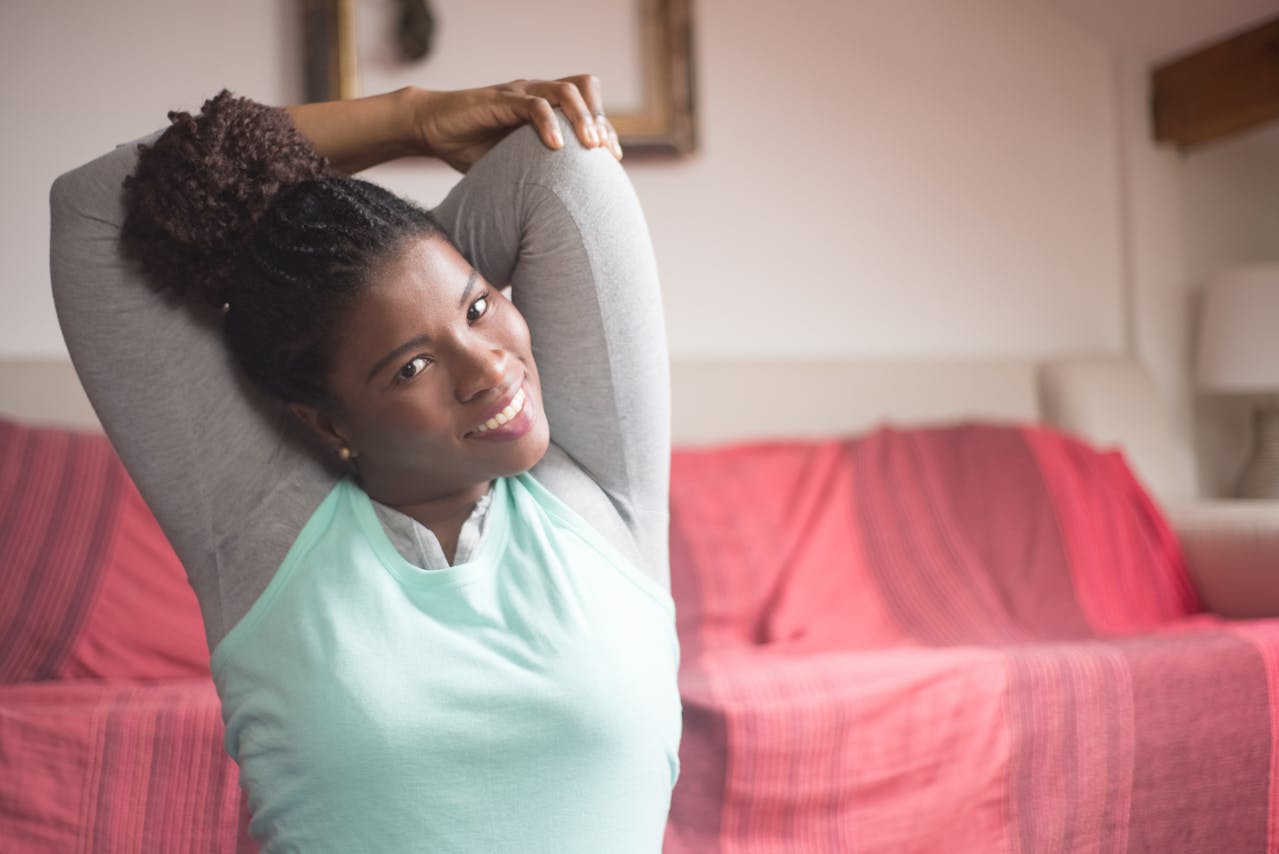Group Fitness Is Back
After many long months during the pandemic exercising along to Zoom classes or watching yoga videos on YouTube, fitness studios slowly started reopening—and just like movie theaters and restaurants, there was a difficult adjustment period where everything felt foreign and new.
From reformer to hot yoga to boxing and spin, there are more options than ever—so if you’re thinking of dipping your toe in the group fitness pool, here’s how to start.
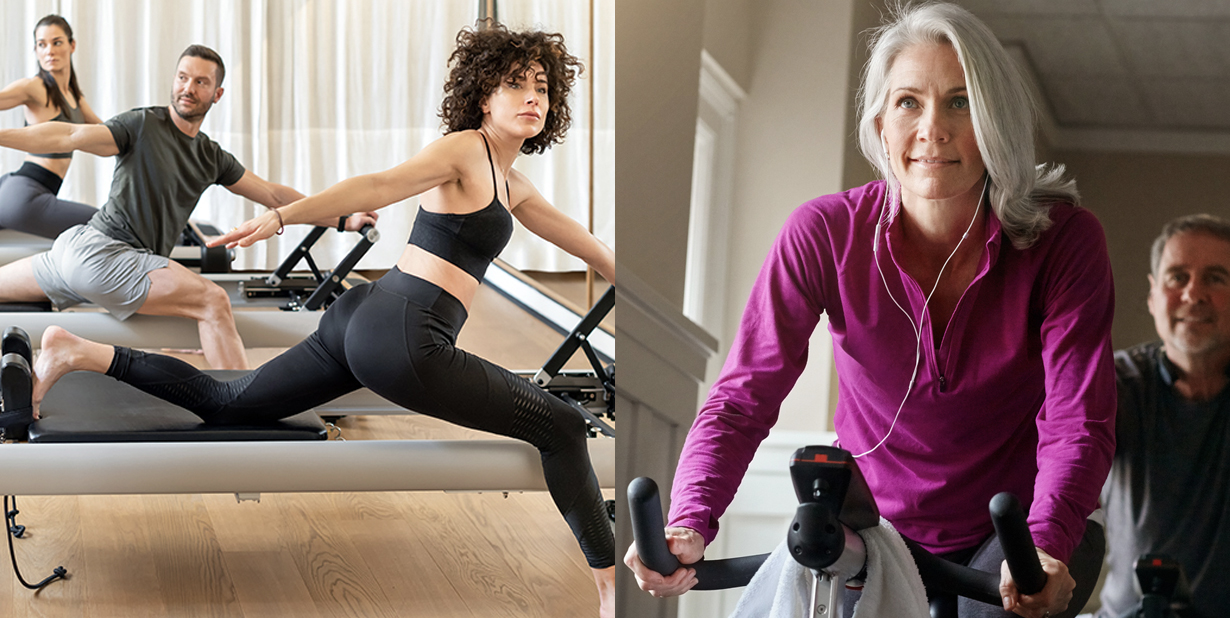
What Counts As Group Fitness?
Though you could certainly count going to the gym as a form of group fitness—after all, there’s other people there—we’re talking about structured fitness classes with instructors and classmates here.
Who Can Try Group Fitness?
Anyone, at any age, at any fitness level, should give group fitness a try—either with friends or solo. There are so many different classes and studios out there that there’s something for everyone.
Who Should Try Group Fitness?
If you’ve been working out at home or are trying to start working out for the first time but find the motivation lacking, you should try a group fitness class. The structure, social aspect, and the variety of classes can really shake things up and get you going.
Why Group Fitness?
Beyond the social aspect, if you’ve had trouble with injuries but are also working with a budget, group fitness classes provide an opportunity to work with a professional instructor without paying for a personal trainer. Having a qualified instructor guiding you can help prevent injury and improve form.
But What About My Classmates?
If you’re even a little bit competitive, you might feel the drive to work harder when you’re moving side by side with others. But if you’re self-conscious, there’s no need to worry—during a class, the majority of people become so focused on their own movement and form that you can be sure they’re not paying attention to you.
When To Start Group Fitness?
Though things at gyms and studios can get a little hairy around the “New Years Resolution” period, there’s no better time than the present. Classes can fill up quick, so even if you can’t see yourself getting started in the next few days, there’s no better time to book a class next week or the week after than right now.
Where Do I Go?
Finding the right place with the right activity can be daunting, and we’ll run down some of the most popular classes to take. While services like Classpass give you the opportunity to try a variety of places in your area, there are two factors that everyone should consider when signing up for a group fitness class.
Ask A Friend
When it comes to finding a class or studio to try, you can trust internet reviews—but the people you should trust the most are the ones you already know, and who know you. Ask friends and neighbors if they’ve taken any local classes that they enjoyed. They’ll give you a far more honest review than anyone online.
Consider Proximity
If you’re really looking to make a commitment to group fitness and not just attend the occasional class, you’ll be more likely to stick with it if you don’t have to go through an annoying commute to get there. Ultimately, that could be the factor that holds you back, even if you like everything else about it.
How Do I Sign Up For Classes?
Many fitness studios use online services like MindBody or FitGrid for booking. Sign up for an account at each before exploring local studios to make purchasing a class or pack more seamless. As mentioned, Classpass is also a great option for those looking to explore different formats—but offers vary by city and state.
Cardio Vs Strength Vs Mobility
No matter what kind of exercise you’re doing, each will involve a different combination of cardio, strength, training, and mobility—yes, even yoga classes. Consider what your strengths, weaknesses, and goals are when it comes to each, and read the descriptions for classes that interest you to see how they integrate each type of exercise.
Cut Through The Lingo
Many group fitness studios might have created their own formats and vernacular for their classes that don’t exactly explain what you’re getting into. It can be hard to understand exactly what they mean—and though we have some tips on frequently-used language, it can also be easier to just call them up and ask for a less flowery description of the class.
Lingo 101: Cardio
If a class description mentions terms like high-impact, mobilize, energize, energetic, high-energy (sense a theme here?), endorphins, stamina, coordination, drills, or the phrase “heart-pumping”? You’re looking at a class with a lot of cardio. That’s full-body movement often found in formats like dance, spin, HIIT (high-intensity interval training), and barre.
Lingo 101: Strength
If you see words like functional movement, challenging, stability, feeling supported, full-body strength, alignment, conditioning, toning, heat, low-impact, or building, you might be in for some strength training. This can mean work with weights or simply with your own body weight—in formats like strength training (duh), circuit training, and Pilates.
Lingo 101: Mobility
Most often associated with yoga—which, of course, can also build strength and get your heart rate going—classes that focus on mobility may use phrases like flow, breath, fluid, stabilize, balance, recovery, flexibility, mindfulness, presence, posture, breathwork, meditation, and connecting mind & body.
Barre, Pilates, and strength training studios may also offer mobility-focused courses to help their students recover.
Community Classes
Many fitness studios will offer community classes with more accessible pricing. Sometimes, this is simply to drive new students to sign up—but these may also be taught by new instructors as part of their training. Though they may be fantastic teachers, it might not give you a well-rounded glimpse into what the studio actually has to offer.
“Signature” Classes
A studio may offer its most basic (though not necessarily introductory) and well-rounded class as a “signature” class. It’s likely these will be taught by an experienced instructor and feature full-body movement. Signature classes can be a great way of getting to know if you like a studio in just one class.
Prepare Yourself
Different classes may have different expectations for what to bring. For example, some studios provide towels or yoga mats, while others expect you to bring your own. Wear what you’re comfortable in and don’t spend money on “gear” until you’ve really committed to an activity. Bring a water bottle.
But the very best way to prepare? Check the website FAQ for the facility you’re interested in attending.
The Benefits Of Being A First Timer
Many studios offer introductory packages with extremely competitive pricing—better than even what Classpass can offer. Try and break down what you get out of the intro package and figure out how many classes you’d need to take to make it worth it. A common package can cost the price of 2-4 classes, but offer unlimited access for 2 weeks—a bargain, when you break it down.
Know Your Limits
Of course, if you can’t walk for five days after your first spin class, you might not be able to reap the benefits of that two-week unlimited access. When you take your first class, don’t push yourself to keep up with the other students. Keep your own pace where necessary to avoid injury.
Explore The Whole Facility
Trying out a group fitness class isn’t just about what happens in the 45 minutes or 1 hour that the door is closed and you’re working out. Some studios are bare-bone, one-room operations, while others can be huge complexes with showers, saunas, and other amenities. This will be reflected in the price—and might end up being a huge draw, depending on your lifestyle.
Be Aware Of Policies
Every studio has different policies surrounding timeliness and cancellations, including for specifics for first timers, which should be listed on their website. For example, you may want to show up early enough to get a tour or have to show up early to sign safety and consent forms before your first class.
Finding The Right Fit
There’s truly something for everyone out here, so if you try something and you don’t like it, it could be the instructor, the studio, or the type of class itself. Try and give it a second chance, either by taking a different class at the same place or by switching up the studio. Talk to staff—they may be able to recommend a different class more suited to your needs.
Or, if it’s just not working for you—try something completely different!
What Kind Of Fitness Class Is Best For Me?
There are as many types of fitness classes as there are people—which is to say, a whole bunch. Here, we’ll run down some of the most popular types of fitness classes and what to expect from each type.
Pilates
Right now, Pilates is one of the most popular group class formats out there—and it’s no wonder. Pilates blends strength and mobility exercises in a low-impact format. It may be working out small muscle groups you didn’t even know you had, but you’ll see and feel the results all over. Pilates is great for core strengthening.
Though reformer Pilates is all the rage right now, mat Pilates is also a great option.
Reformer Pilates
Reformer Pilates take place on a large machine called, you guessed it, a reformer—and while it can seem intimidating, it can actually give you a more full range of motion than you might get on a mat. Thanks to the size of the machines, there may be less students in the class than a mat class, which can allow for more one-on-one time with the instructor.
What To Expect From Reformer Pilates
During a class, you’ll spend most of your time on the carriage of the machine in various positions, using a combination of a bar, straps, and/or a jumpboard to move your body in repetitive motions, pulses, or holds. Though it can feel precarious, trust the machine—it can hold your weight easily.
If it’s your first time taking a reformer class, arrive early and ask your instructor for a quick rundown of the names of the parts and how the springs, which control resistance, work.
Mat Pilates
Though they may appear very different, both reformer and mat Pilates use a lot of the same movements and postures. With mat Pilates, you may also use props, like light weights, blocks, or squish balls. The difference is you won’t have resistance like you do on the reformer. Mat Pilates especially works the core muscles, even during exercises that work the arms or legs.
Barre Class
If you’ve taken Pilates before, it’s likely that you’ve done a lot of the same movement you might experience in a barre class. Barre combines small, precise Pilates-like movements with ballet-inspired moves—think plies with a weight in one hand and the other hand on the proverbial barre. But there’s not usually too much dancing here.
What To Expect From Barre
Though most moves are full-body, many barre instructors follow a similar format—a sequence of moves at the barre for legs, a sequence standing for arms, and a sequence on the mat for core. There may also be a cardio component involving some very basic aerobic dance-inspired moves to get the heart rate up.
Spin Classes
Before everyone had a Peloton in their basement or garage, there were spin classes, which have that rare combo of relatively low-impact movement (AKA no jumping up and down on the floor) and heart-racing cardio, all along to a sometimes-deafening playlist. A sweat towel is a must, and ask for earplugs if you think you might need them. You may also have small weights for upper-body sequences.
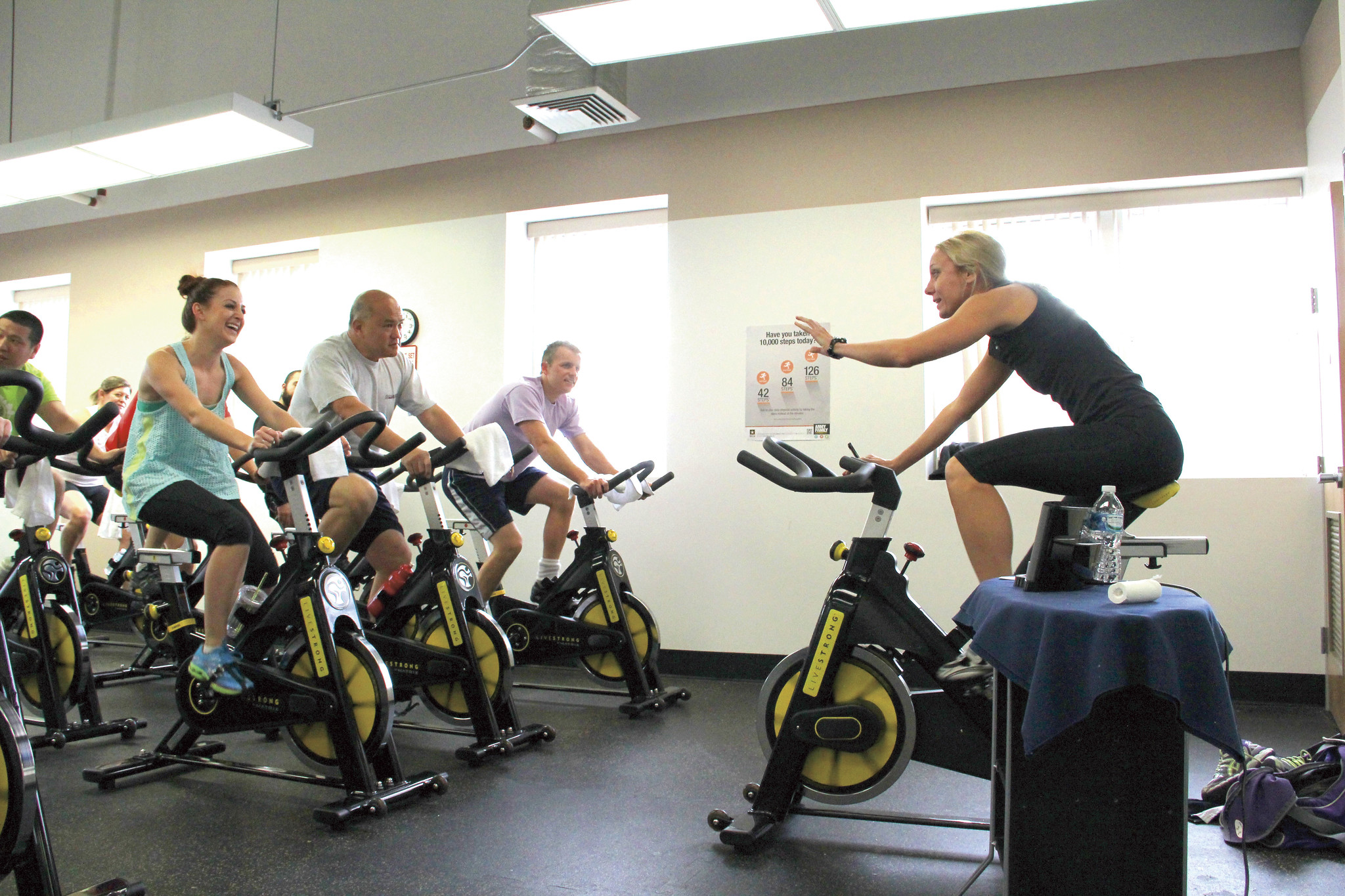 Aberdeen Proving Ground, Flickr
Aberdeen Proving Ground, Flickr
What To Expect In A Spin Class
You’ll be biking with different levels of resistance and an instructor at the front guiding you through the paces. If you’re unfamiliar with the equipment, get a primer from the instructor beforehand, including how to adjust the height of the seat, and how to click in and out of the pedals with your shoes.
You’ll be spending most of the class pedalling with your rear lifted off the seat, so it’s best to get everything just right beforehand.
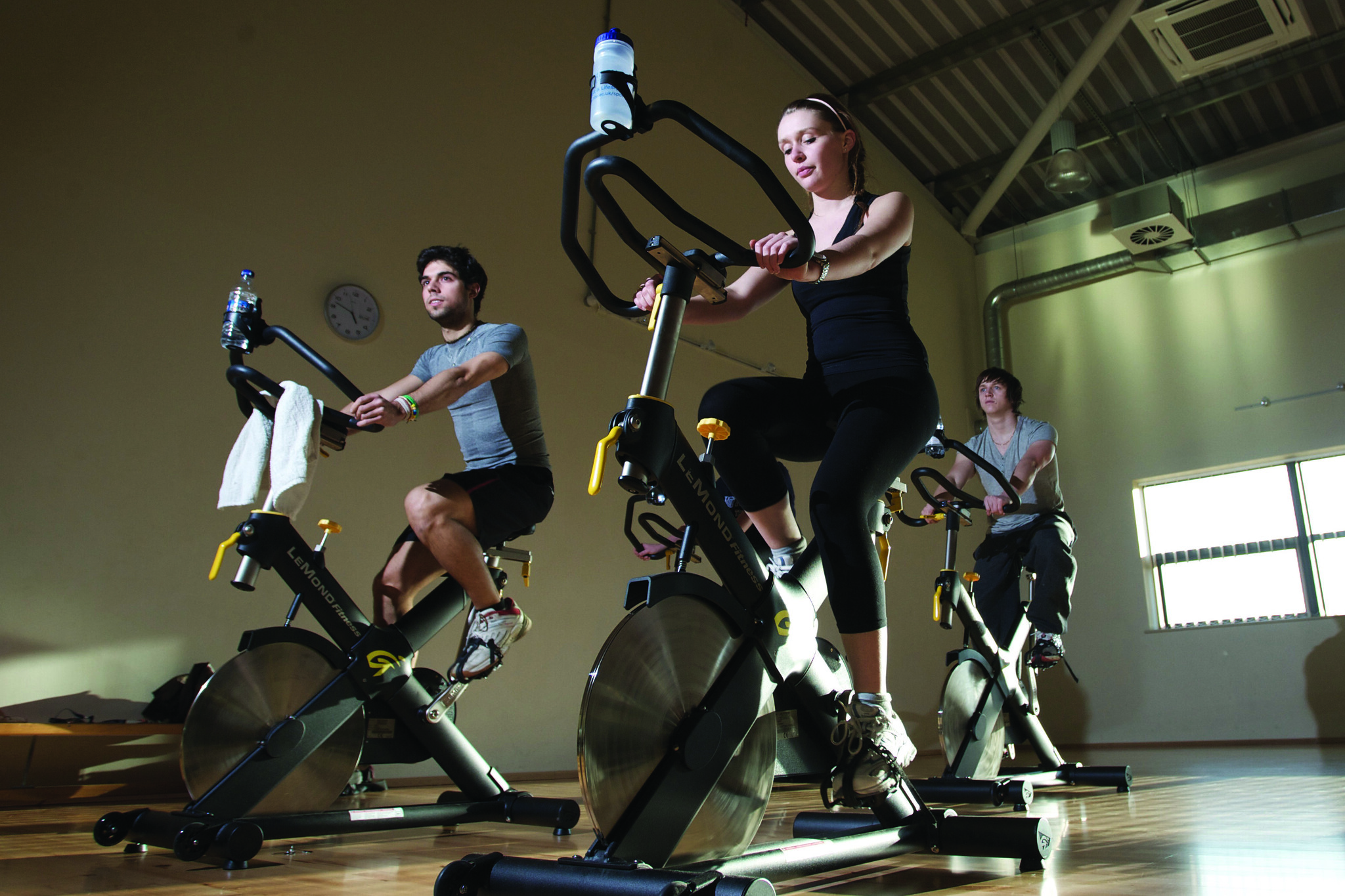 Nottingham Trent University, Flickr
Nottingham Trent University, Flickr
Yoga
There are so many different types of yoga classes out there—there’s truly something for everyone and every fitness level. These can range from vinyasa yoga, where you move through poses at a much faster pace, to hot yoga, which takes place in a heated room, all the way to restorative yoga, where you hold deeper poses for longer intervals—sometimes affectionately called “adult naptime”.
What To Expect In A Yoga Class
Different yoga classes will have different paces, poses, and props. Check your studio’s instructions for each. If you’ve never taken a yoga class before, look for classes marked “foundations” to get an idea of how to properly execute common poses before moving up to try different formats. Some teachers may simply call out poses instead of demonstrating them, which can make classes hard to follow.
HIIT Classes
High-Intensity Interval Training, or HIIT, alternates short periods of intense, sometimes grueling movements with active recovery periods where you’re still moving and exercising. Essentially, you’re trying to hit a high heart rate for an extended period of time to work up a sweat and burn fat more easily.
What To Expect In A HIIT Class
Much like yoga, there are many types of HIIT classes—and many have specific branding, which can make it confusing. A boxing fitness class can be a HIIT class, a CrossFit class can be a HIIT class (with more focus on functional movement), and bootcamp classes like Barry’s can be HIIT. Ultimately, what you expect will depend on the format—but you’ll definitely need a towel and a full water bottle.
Zumba
Zumba is a great option for anyone who finds themselves in the middle of a regular workout class wondering, “When will this be over?” The combination of high-energy, aerobic Latin-inspired dance moves with rhythmic music will make an hour pass in the blink of an eye.
What To Expect In A Zumba Class
Zumba is a whole lot of dancing—so, like any cardio-focused class, be sure to bring water. Most importantly, especially if you’re not used to cardio, pace yourself so that you’re not having to duck out of the room 15 minutes in. It might be hard to pick up on the moves at first—but don’t worry, everyone has been there before, and everyone gets it eventually.
Keep your effort consistent and most importantly, have fun.
Other Classes
If none of the above options appeal to you, there are so many other types of fitness classes, from kickboxing to water aerobics to aerial and pole fitness to martial arts. There is really something for everyone, so keep trying different things until you find your niche.
Prioritize Recovery
Most group fitness classes will end with a short period of stretching—but don’t stop there. Continue stretching problem areas later on at home, or muscle groups that got a lot of work. Remember to hydrate more than you normally would and take a few days rest after a new type of exercise to see how it hits your muscles.


